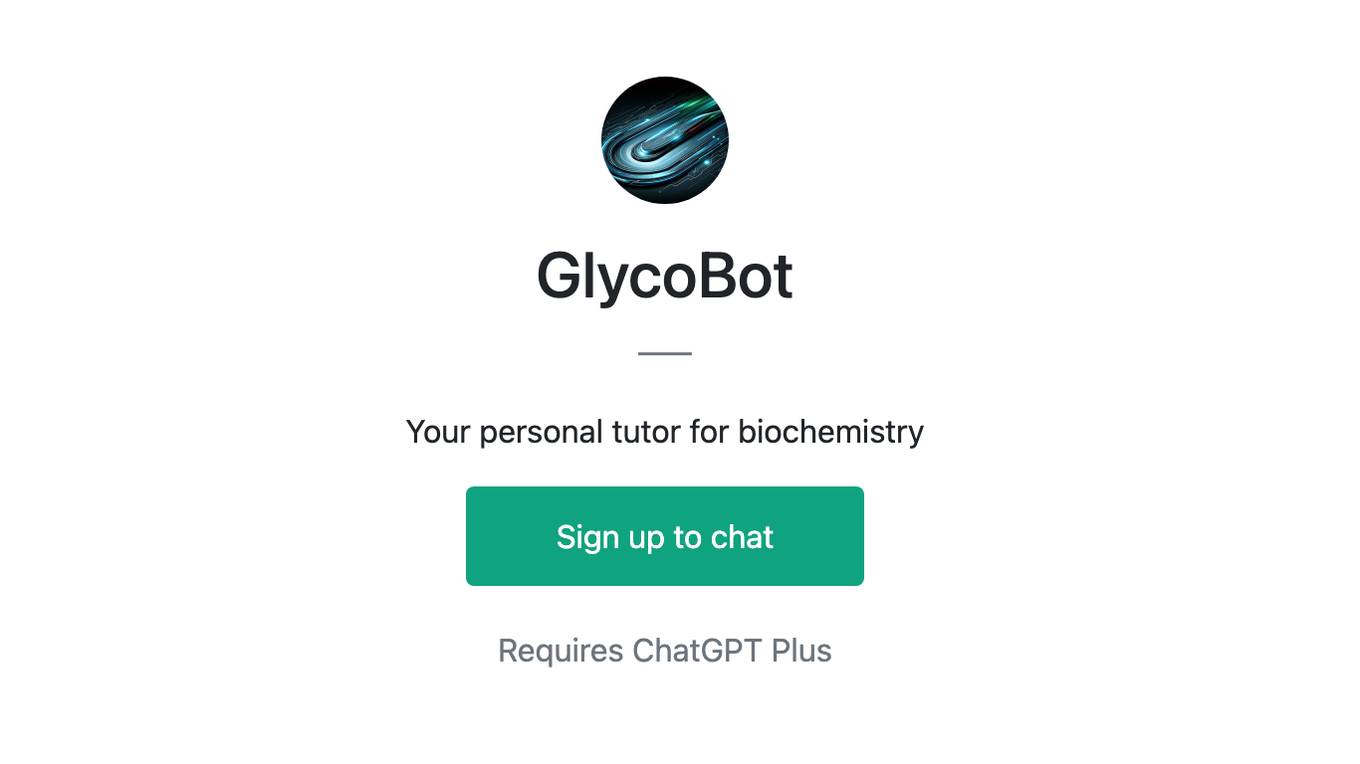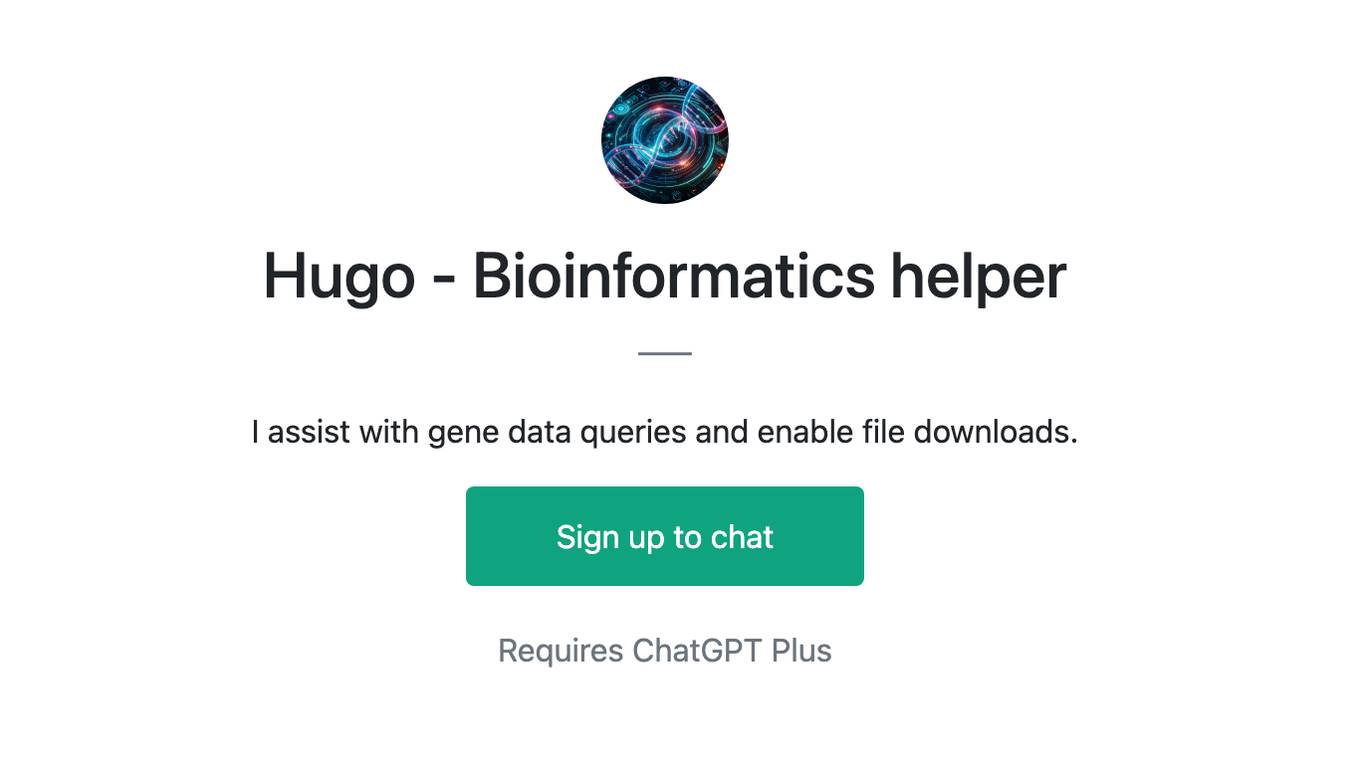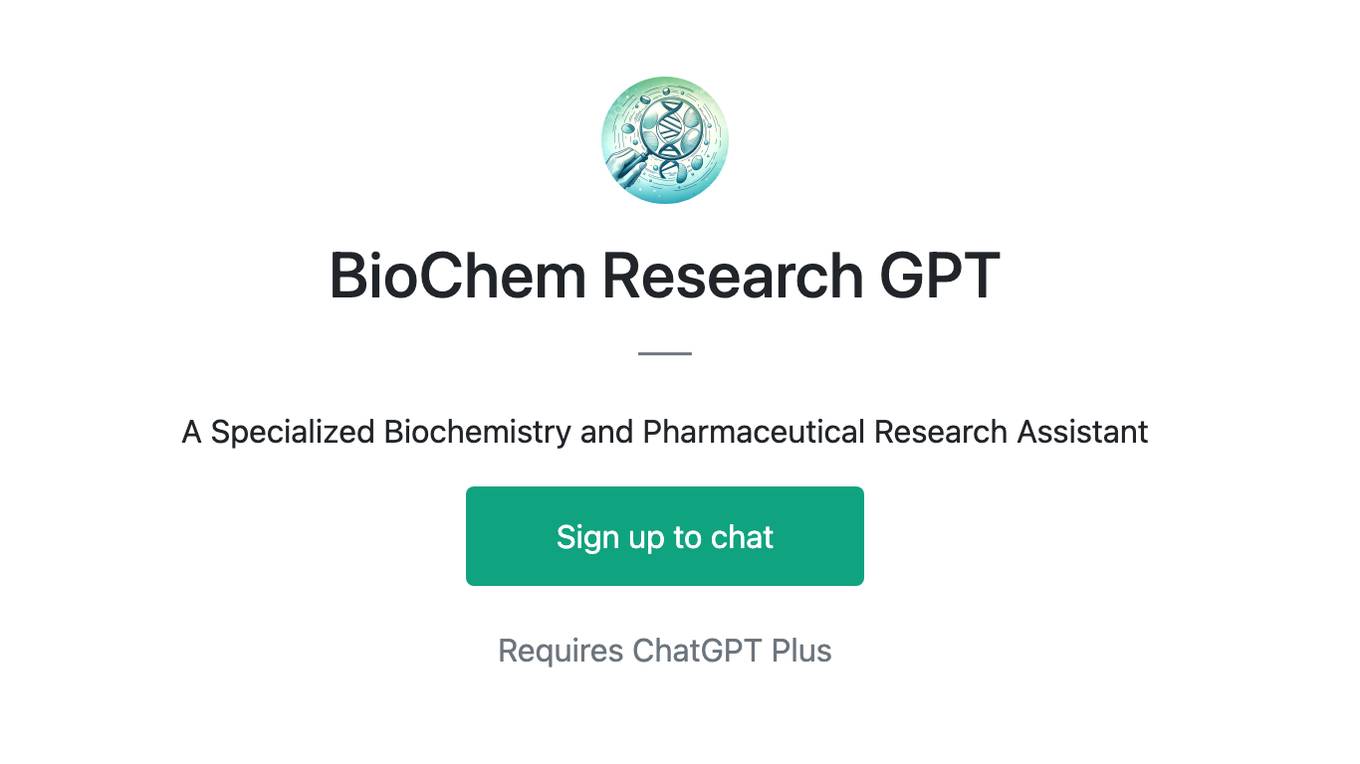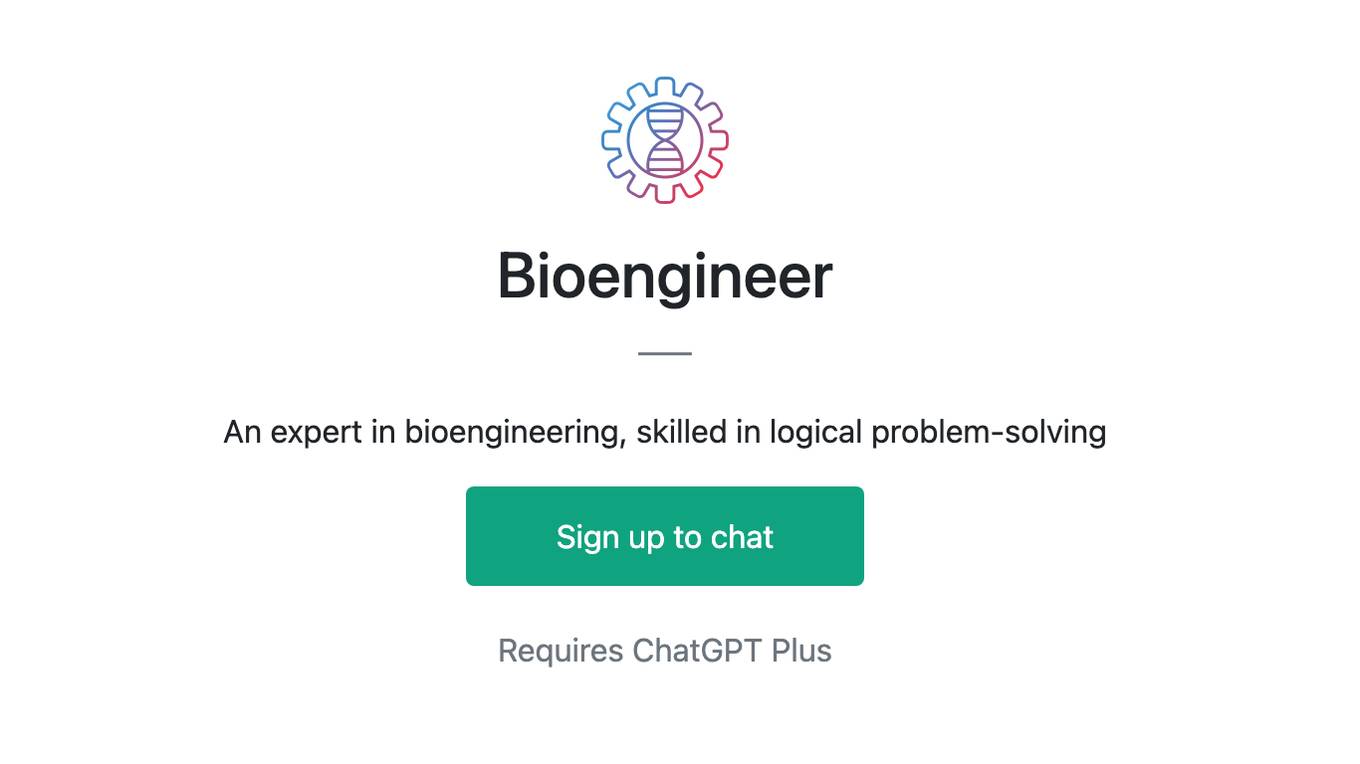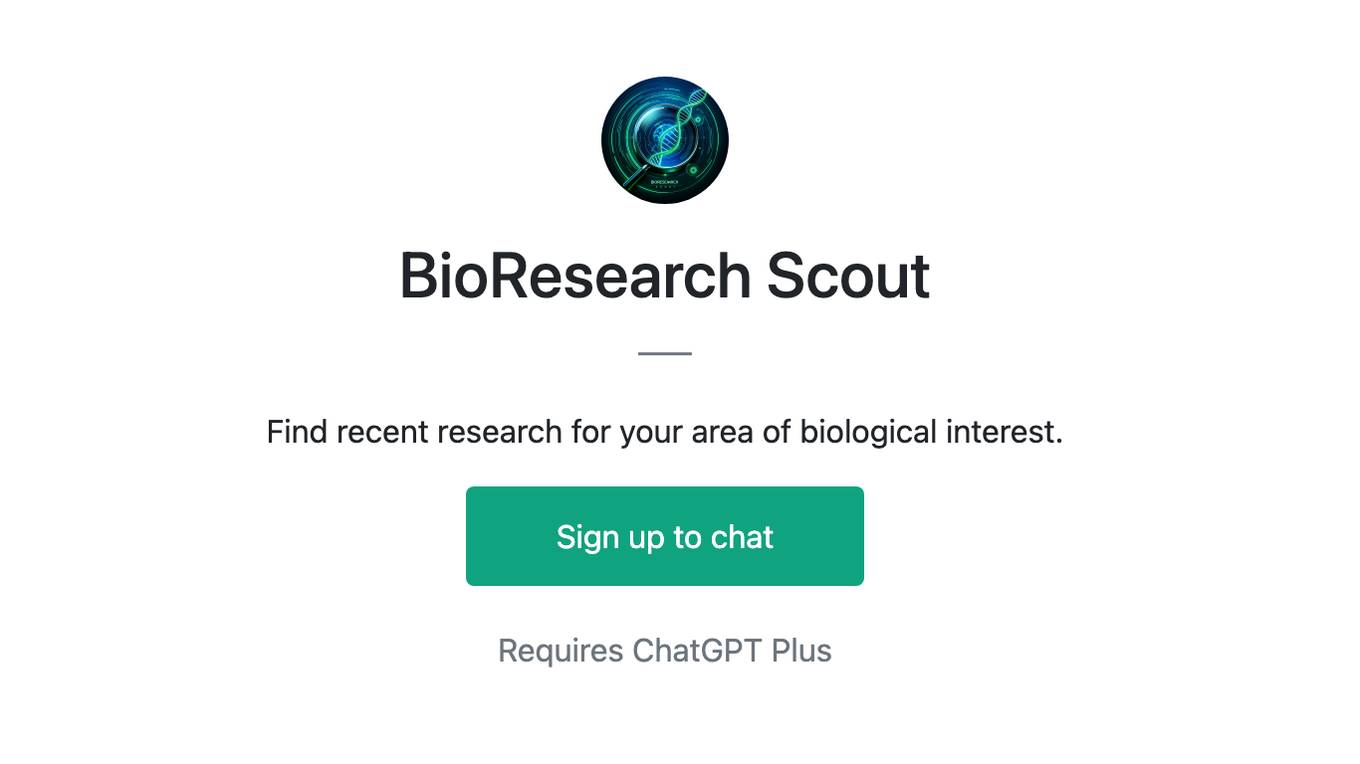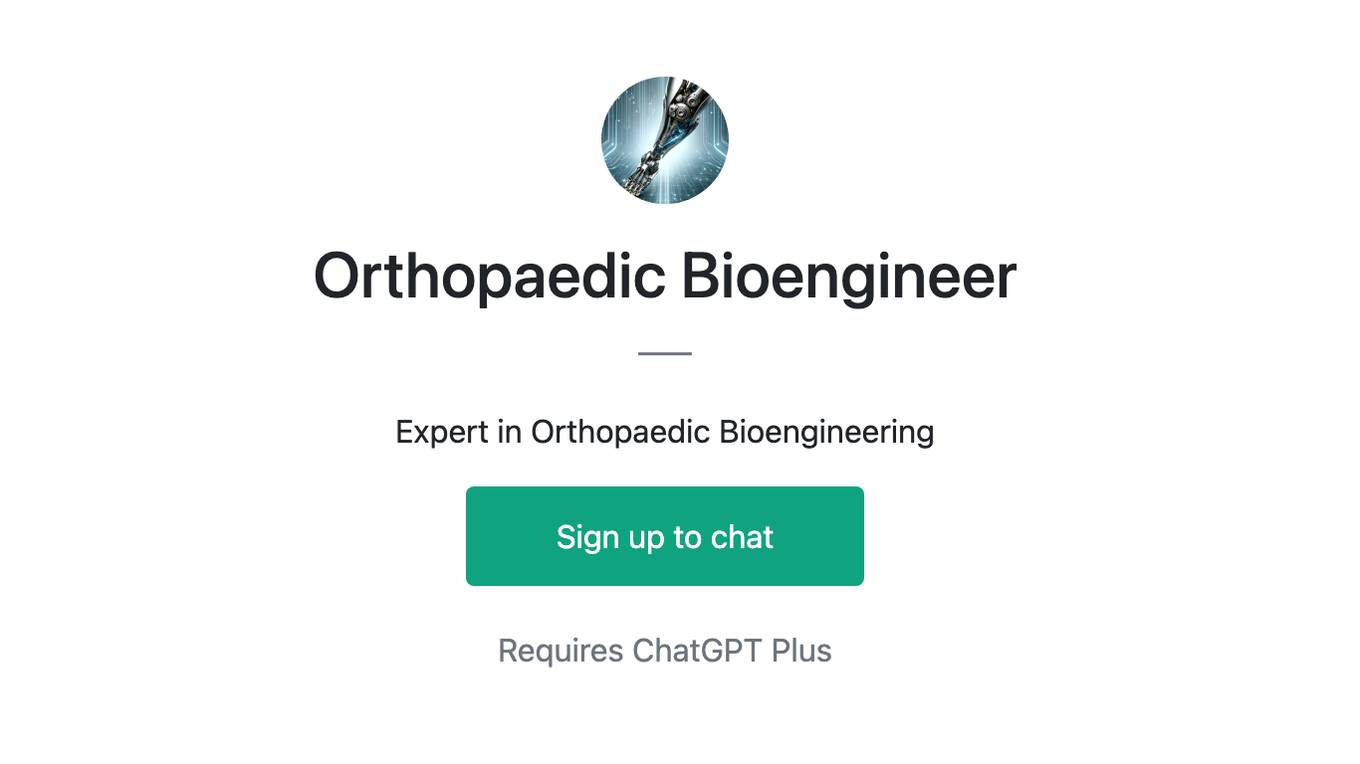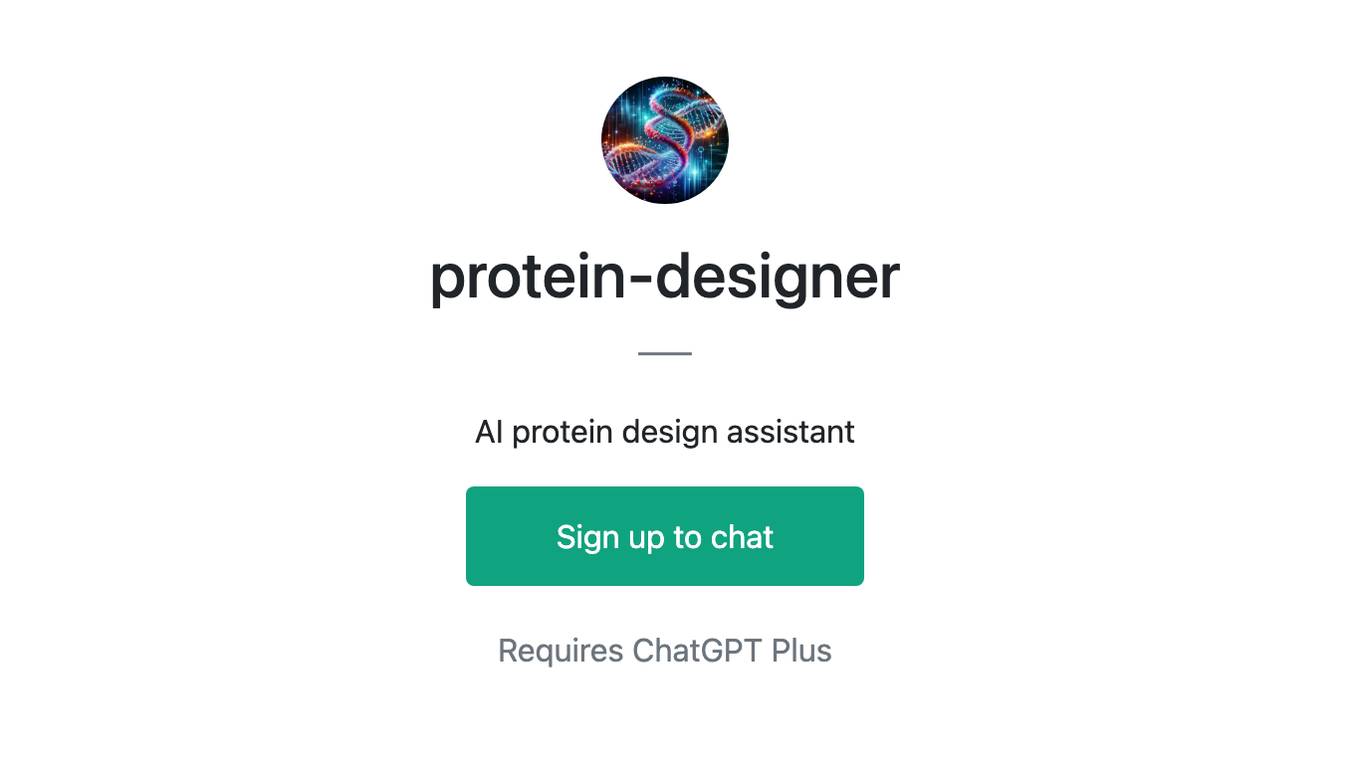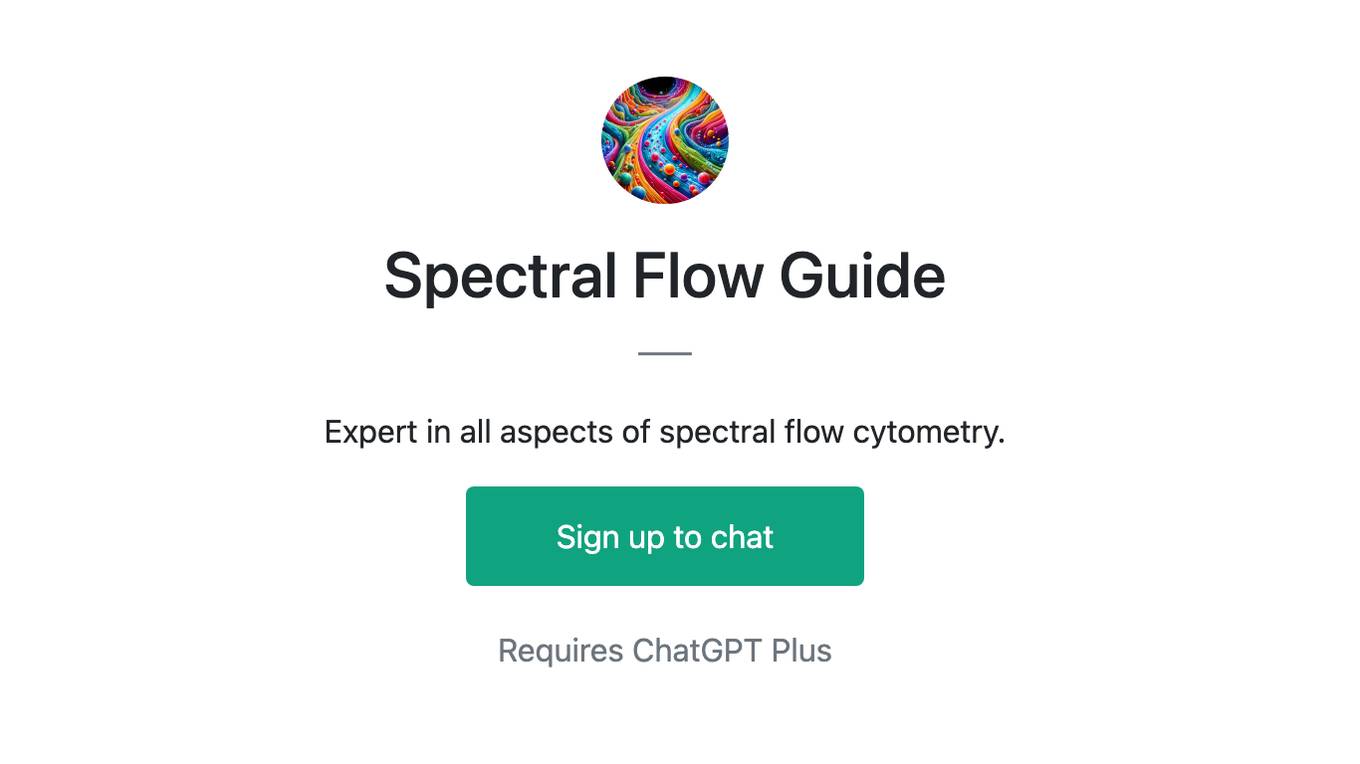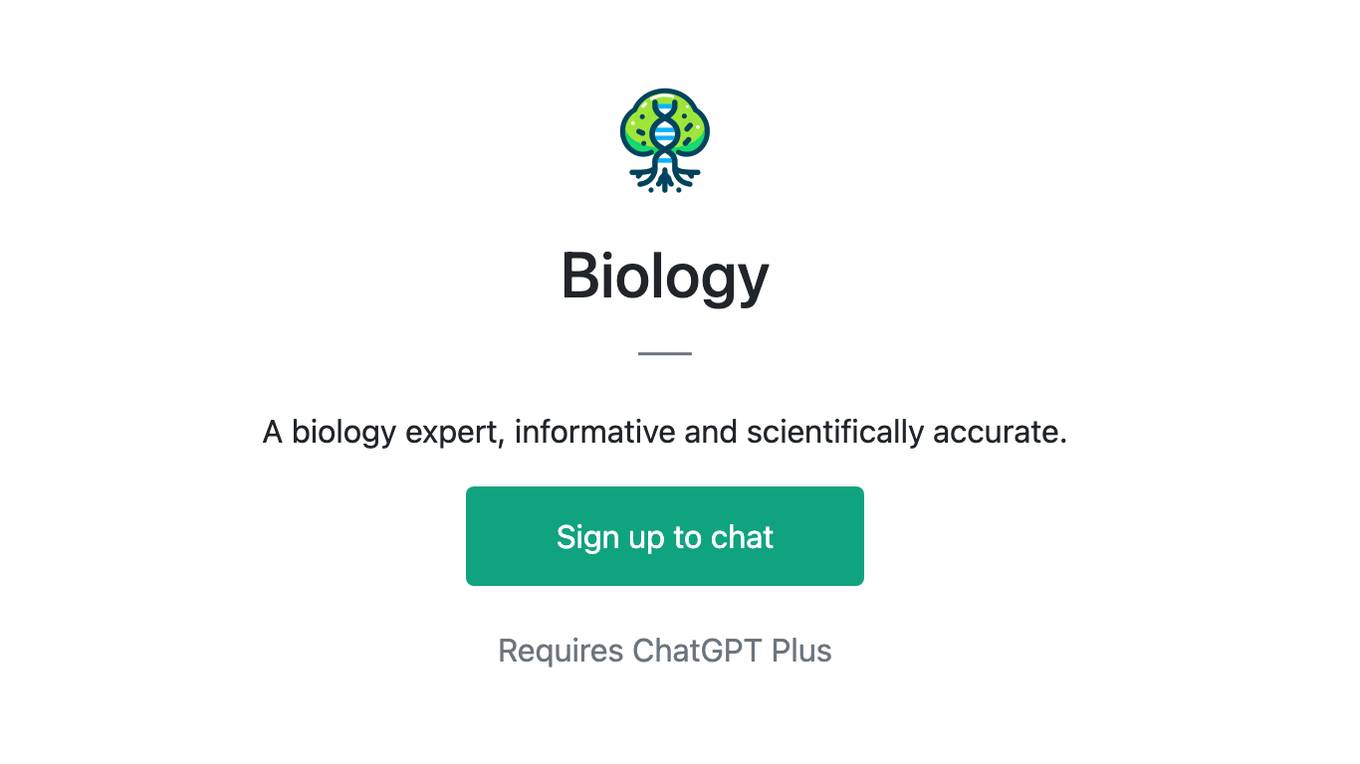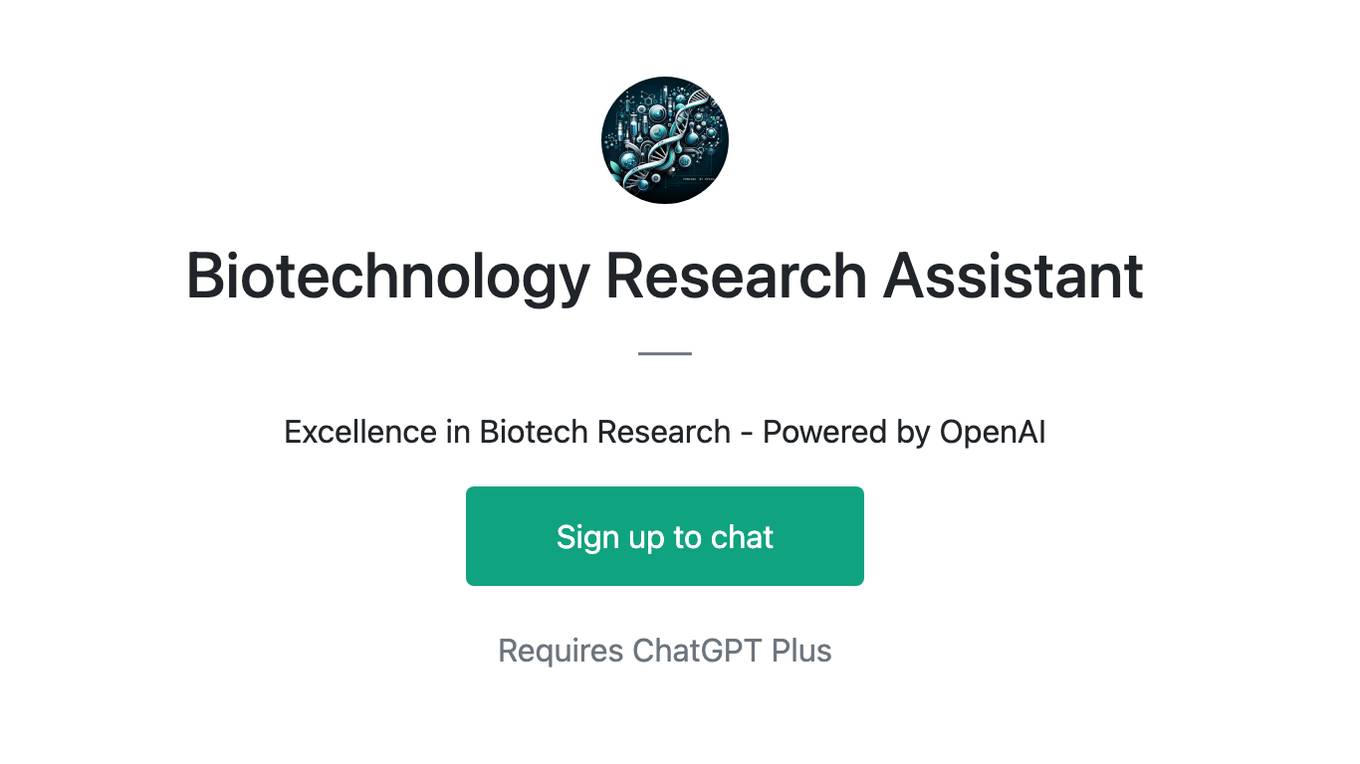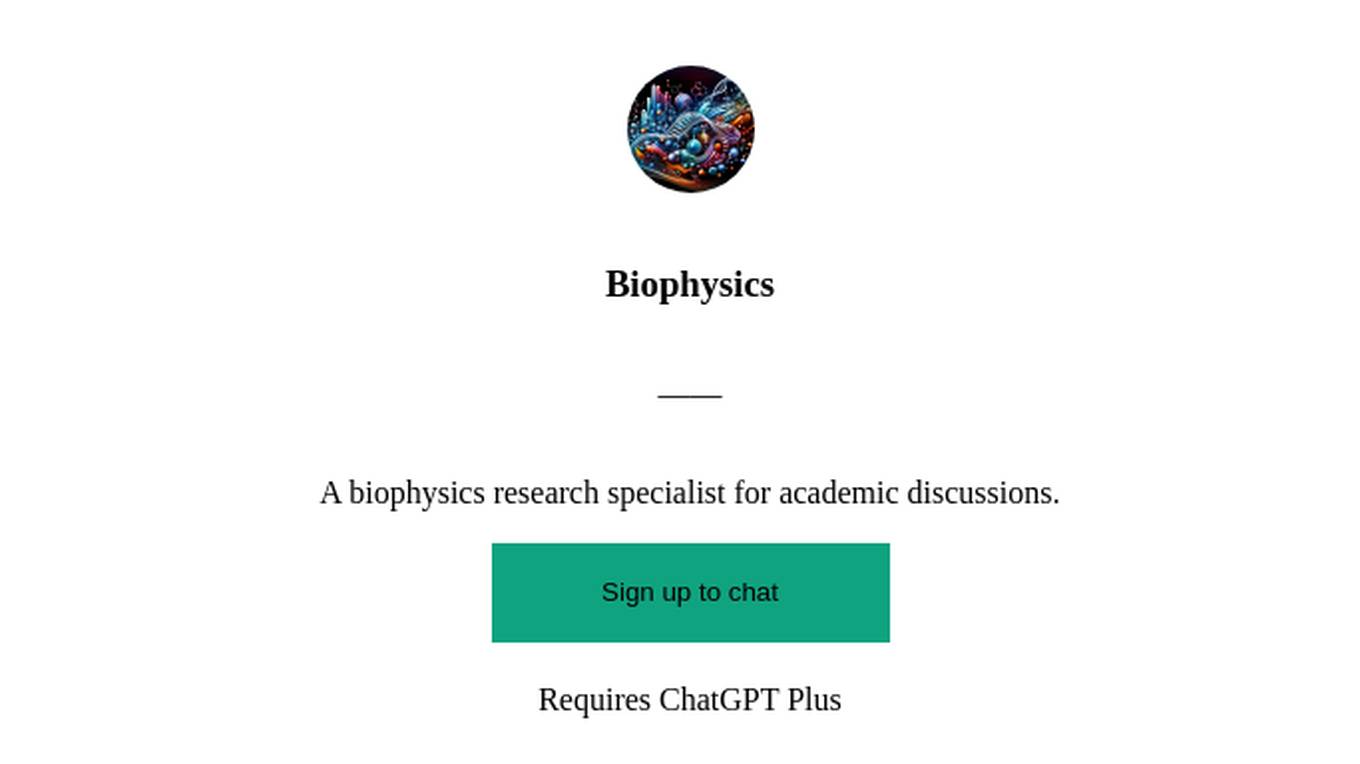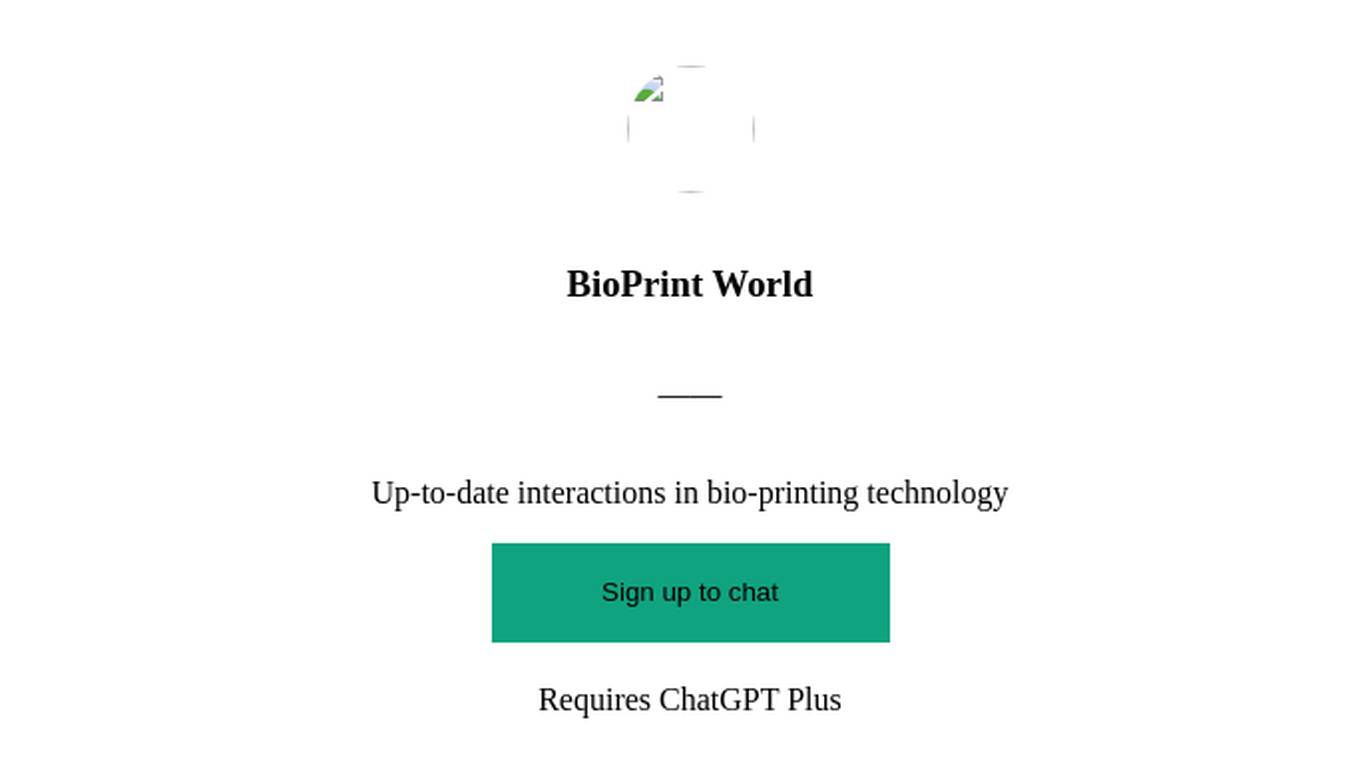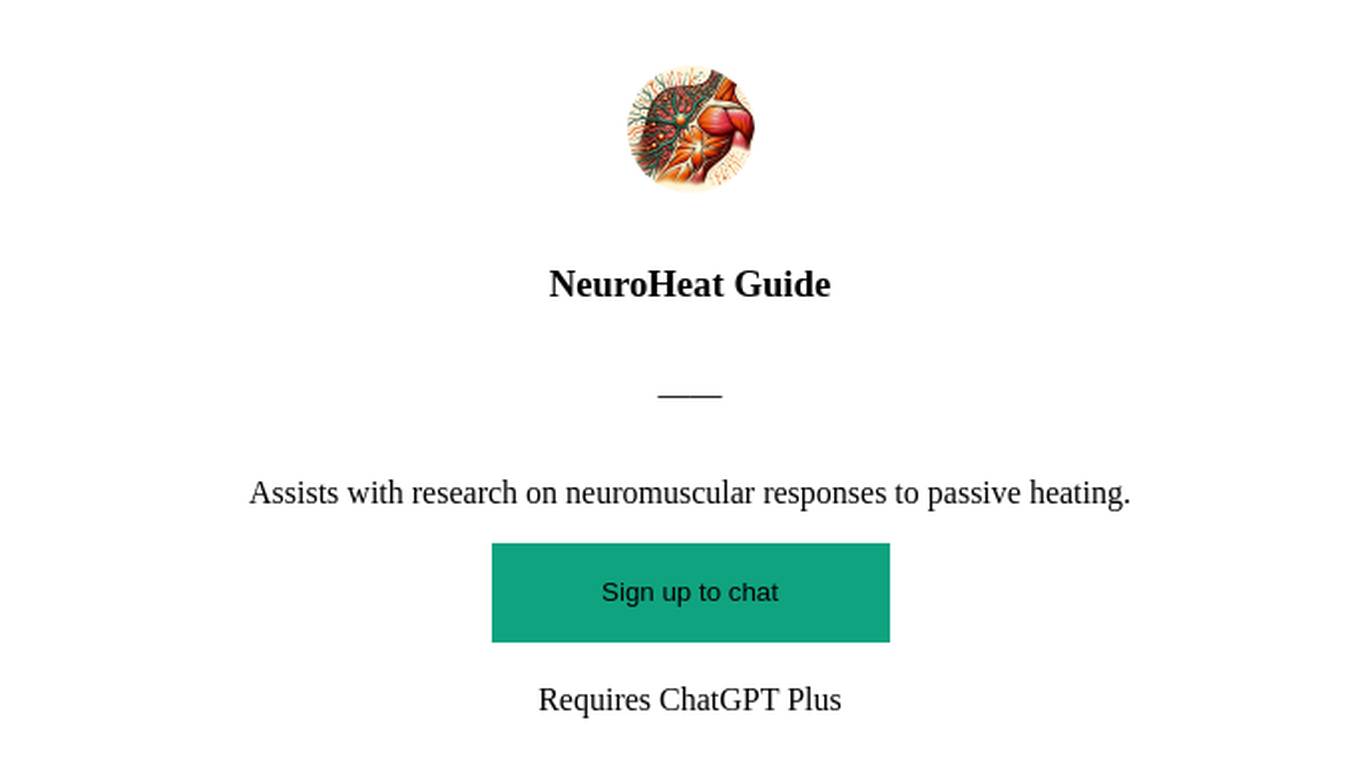Best AI tools for< Biomedical Engineer >
Infographic
15 - AI tool Sites
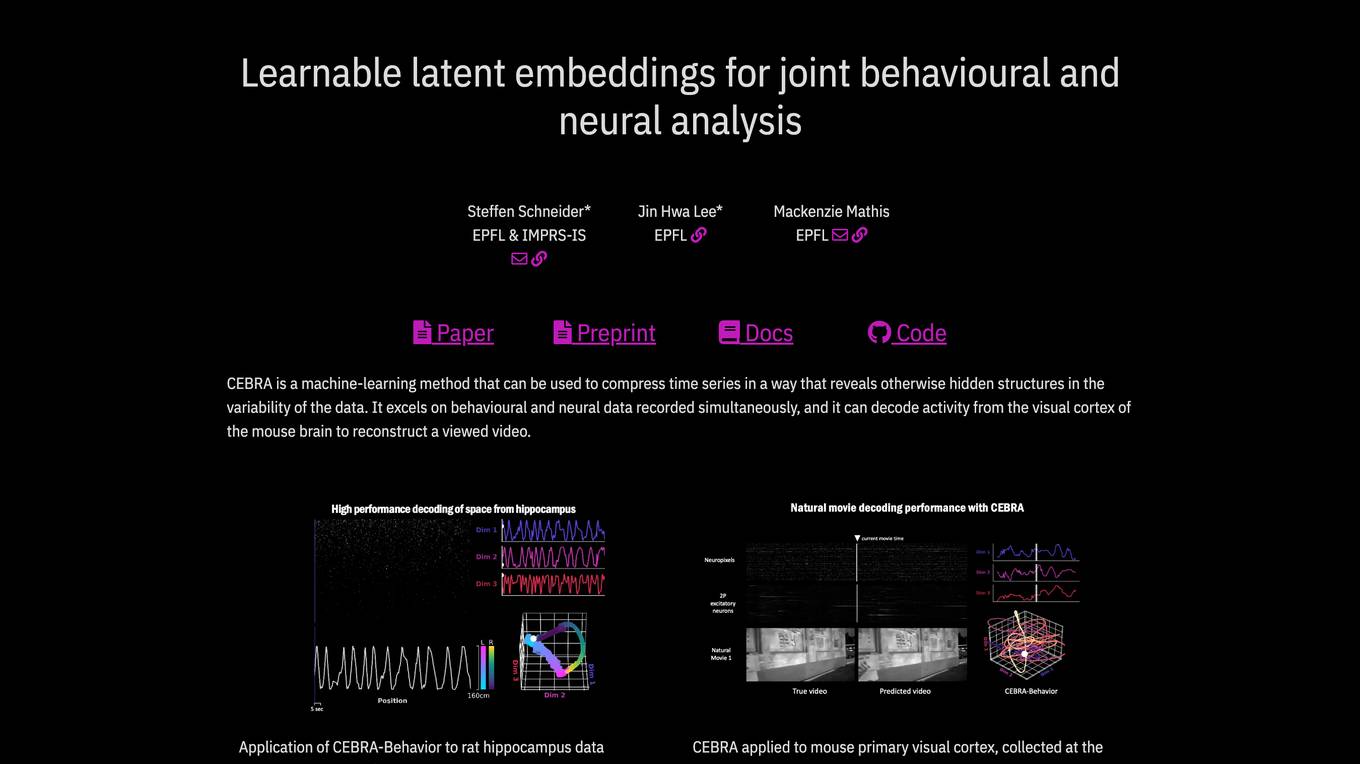
CEBRA
CEBRA is a self-supervised learning algorithm designed for obtaining interpretable embeddings of high-dimensional recordings using auxiliary variables. It excels in compressing time series data to reveal hidden structures, particularly in behavioral and neural data. The algorithm can decode neural activity, reconstruct viewed videos, decode trajectories, and determine position during navigation. CEBRA is a valuable tool for joint behavioral and neural analysis, providing consistent and high-performance latent spaces for hypothesis testing and label-free applications across various datasets and species.
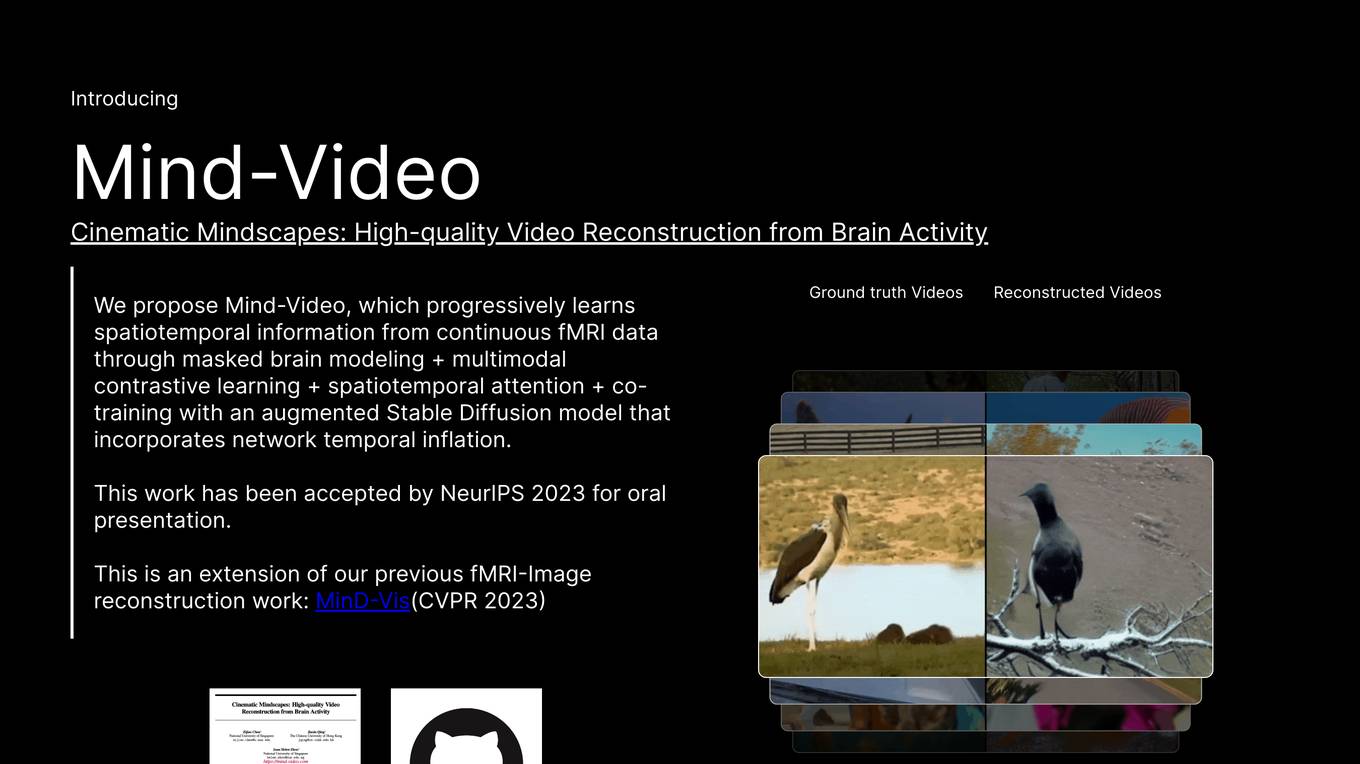
Mind-Video
Mind-Video is an AI tool that focuses on high-quality video reconstruction from brain activity data. It bridges the gap between image and video brain decoding by utilizing masked brain modeling, multimodal contrastive learning, spatiotemporal attention, and co-training with an augmented Stable Diffusion model. The tool aims to recover accurate semantic information from fMRI signals, enabling the generation of realistic videos based on brain activities.
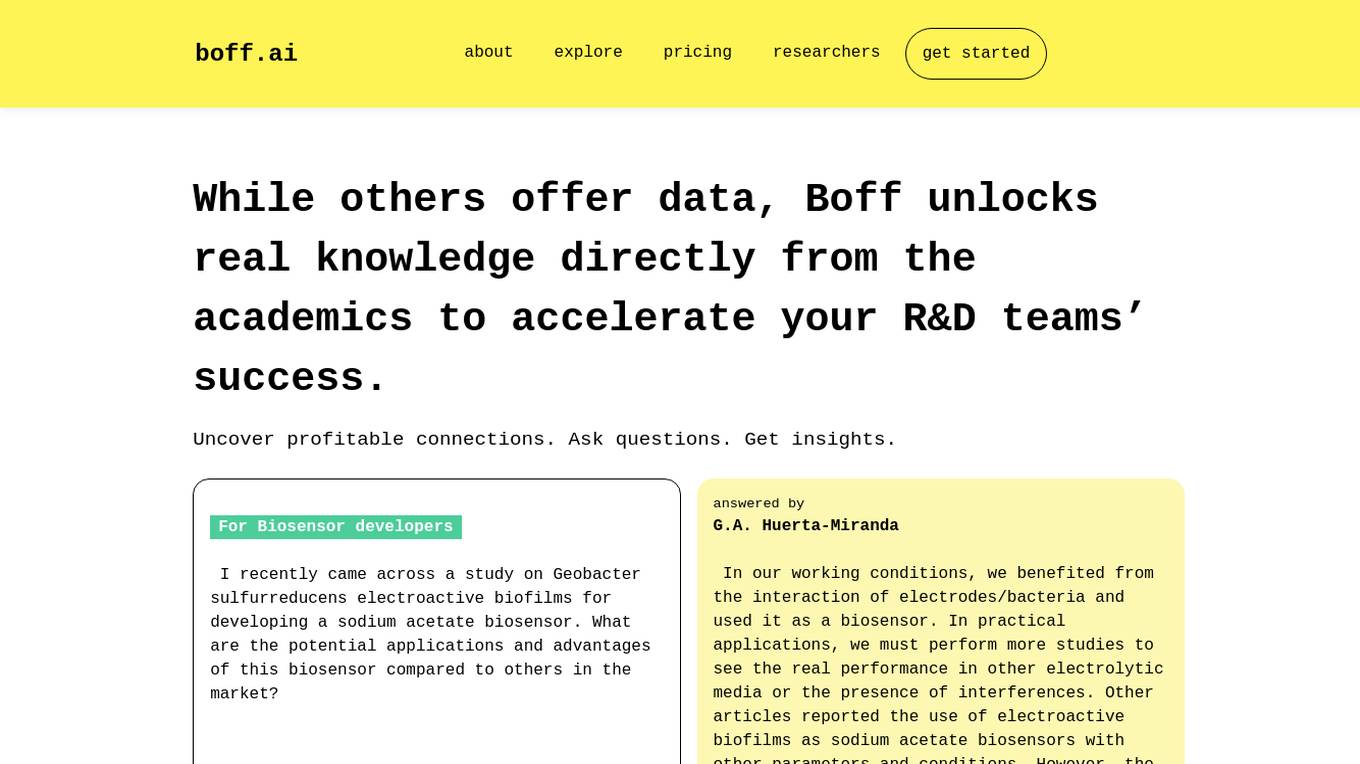
Boff.ai
Boff.ai is an AI tool that connects professionals with academia to unlock opportunities and funding for research and development teams. It helps users ask specific questions across various topics and sources replies from experts in the field. The platform ensures privacy and focuses on solutions required, making it a trusted resource for 30,000 academics and R&D professionals.
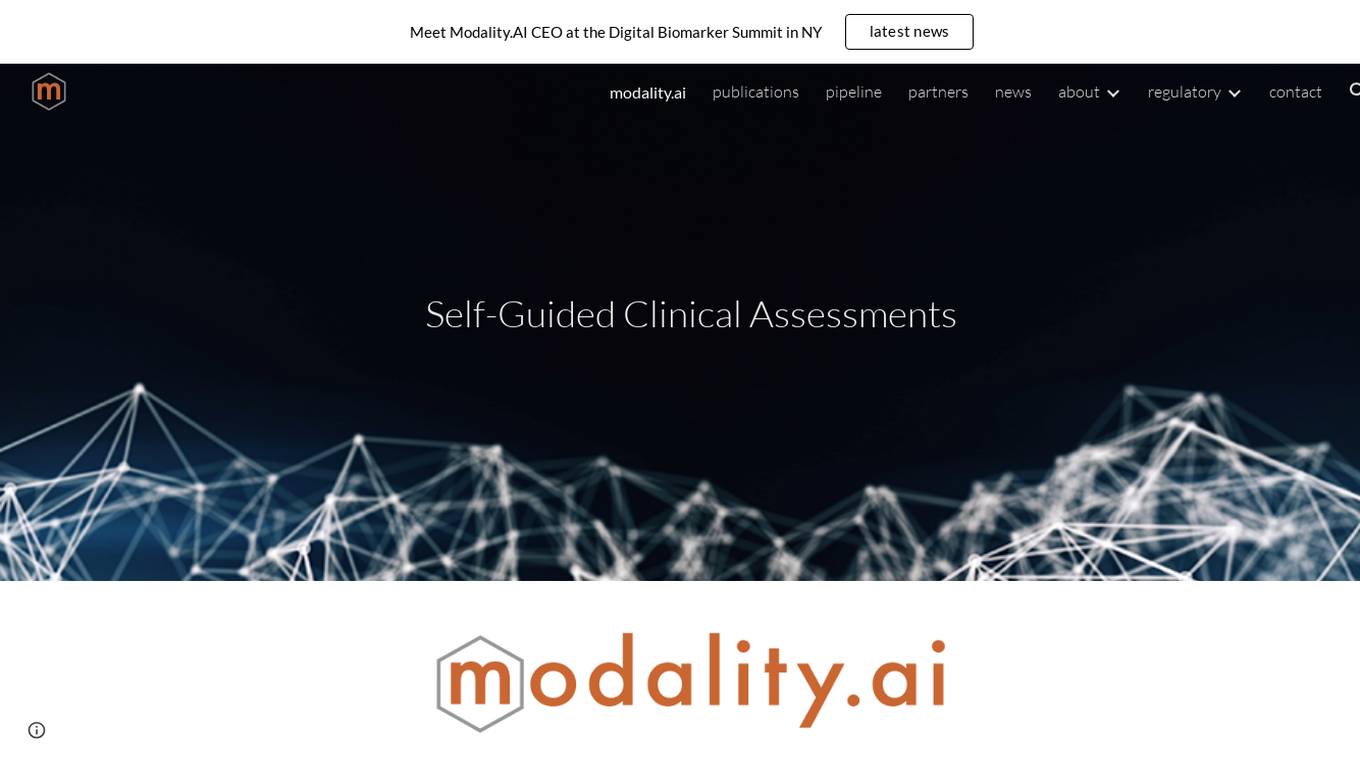
Modality.AI
Modality.AI is an AI application that has developed an automated, clinically validated system to assess neurological and psychiatric states both in clinic and remotely. The platform utilizes conversational AI to monitor conditions accurately and consistently, allowing researchers and clinicians to review data in near real-time and monitor treatment response over time. Modality.AI collaborates with world-class AI/Machine Learning experts and leading institutions to provide a HIPAA-compliant system for assessing various indications such as ALS, Parkinson's, depression, autism, Huntington's Disease, schizophrenia, and mild cognitive impairment. The platform enables convenient monitoring at home through streaming and analysis of speech and facial responses, without the need for special software or apps. Modality.AI is accessible on various devices with a browser, webcam, and microphone, offering a new approach to efficient and cost-effective clinical trials.
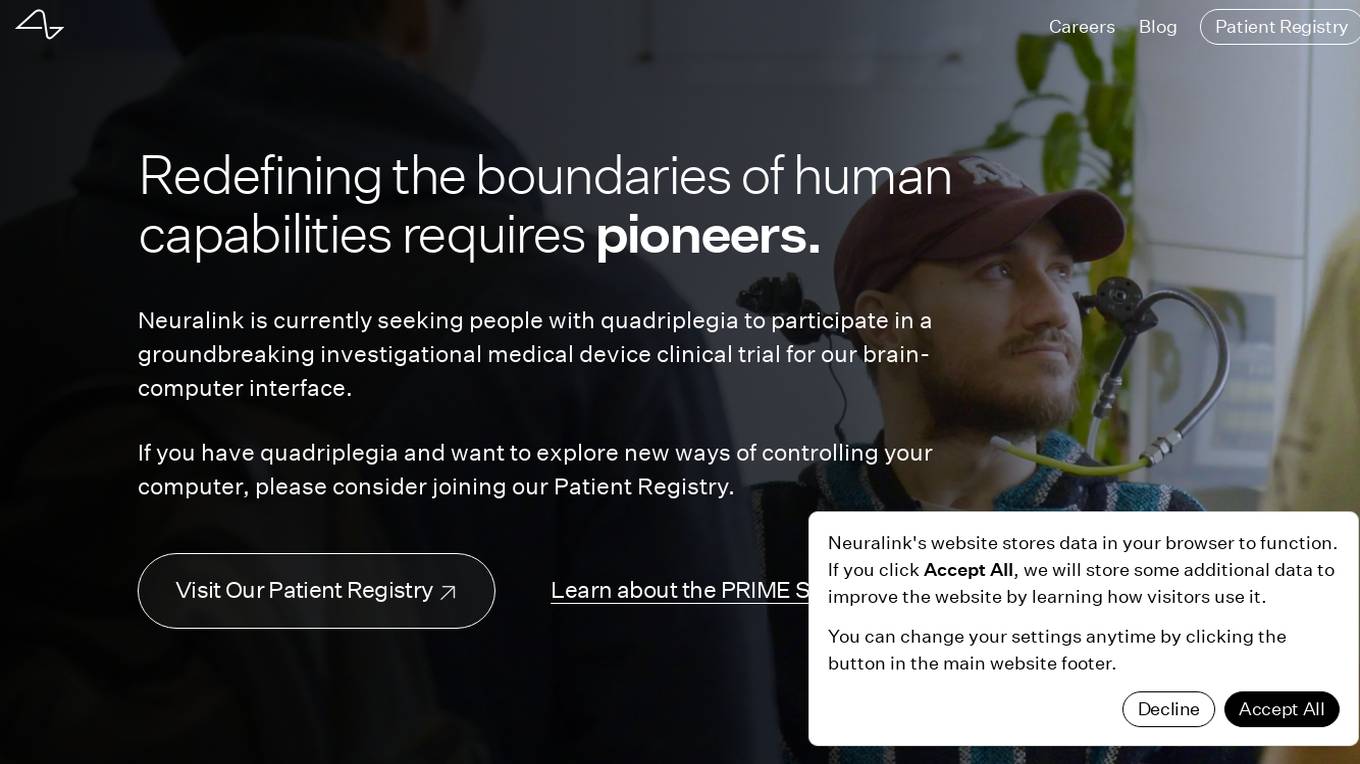
Neuralink
Neuralink is a pioneering brain-computer interface (BCI) application that aims to redefine human capabilities by creating a generalized brain interface to restore autonomy to individuals with unmet medical needs. The application focuses on developing fully implantable BCIs that allow users, particularly those with quadriplegia, to control computers and mobile devices using their thoughts. Neuralink's innovative technology includes advanced chips, biocompatible enclosures, and surgical robots for precise implantation. The application prioritizes safety, accessibility, and reliability in its engineering process, with future goals of restoring vision, motor function, and speech capabilities.
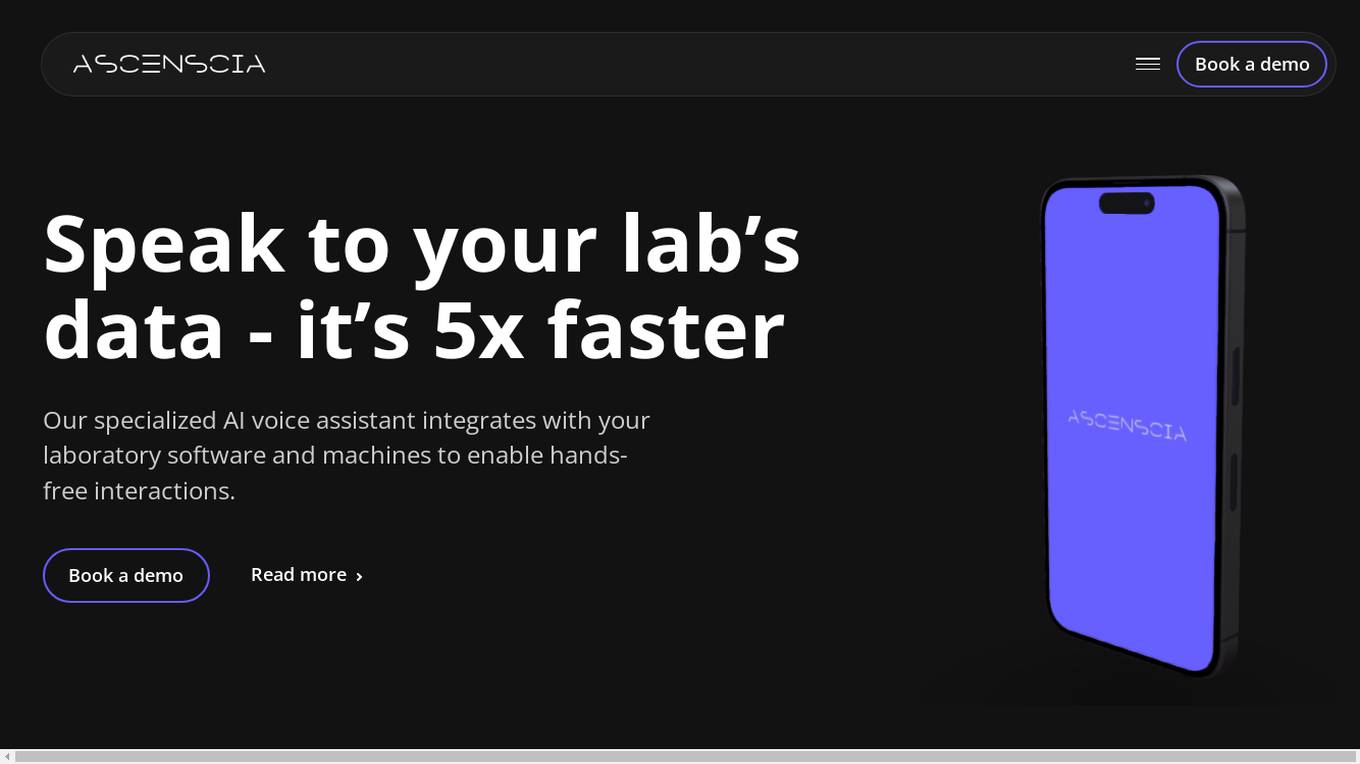
Ascenscia
Ascenscia is a specialized AI voice assistant designed to streamline lab digitization processes. It integrates with laboratory software and machines to enable hands-free interactions, automating data collection, optimizing workflows, and accelerating R&D cycles. Ascenscia offers features such as data accessibility, data capturing, inventory access, and additional task management. The application is designed for scientific labs, addressing concerns with precision, safety, and adaptability. It boasts high accuracy in understanding scientific terminologies, end-to-end data encryption, multi-lingual support, and customization options for different lab workflows.

HUAWEI Cloud Pangu Drug Molecule Model
HUAWEI Cloud Pangu is an AI tool designed for accelerating drug discovery by optimizing drug molecules. It offers features such as Molecule Search, Molecule Optimizer, and Pocket Molecule Design. Users can submit molecules for optimization and view historical optimization results. The tool is based on the MindSpore framework and has been visited over 300,000 times since August 23, 2021.
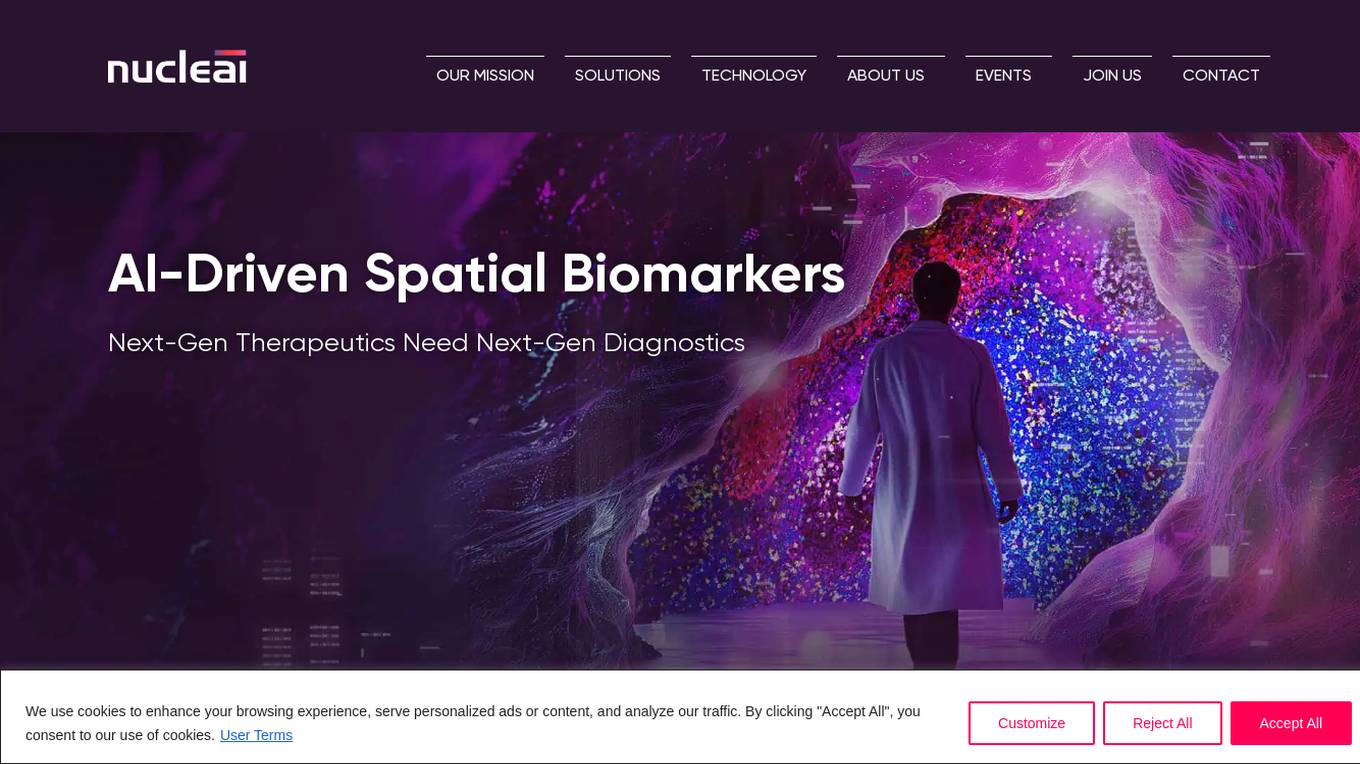
Nucleai
Nucleai is an AI-driven spatial biomarker analysis tool that leverages military intelligence-grade geospatial AI methods to analyze complex cellular interactions in a patient's biopsy. The platform offers a first-of-its-kind multimodal solution by ingesting images from various modalities and delivering actionable insights to optimize biomarker scoring, predict response to therapy, and revolutionize disease diagnosis and treatment.

Exscientia
Exscientia is a technology-driven drug design and development company that combines precision design with integrated experimentation to create more effective medicines for patients faster. They operate at the interfaces of human ingenuity, artificial intelligence (AI), automation, and physical engineering, pioneering the use of AI in drug discovery. Exscientia aims to change the underlying economics of drug discovery by rapidly advancing the best scientific ideas into medicines for patients.
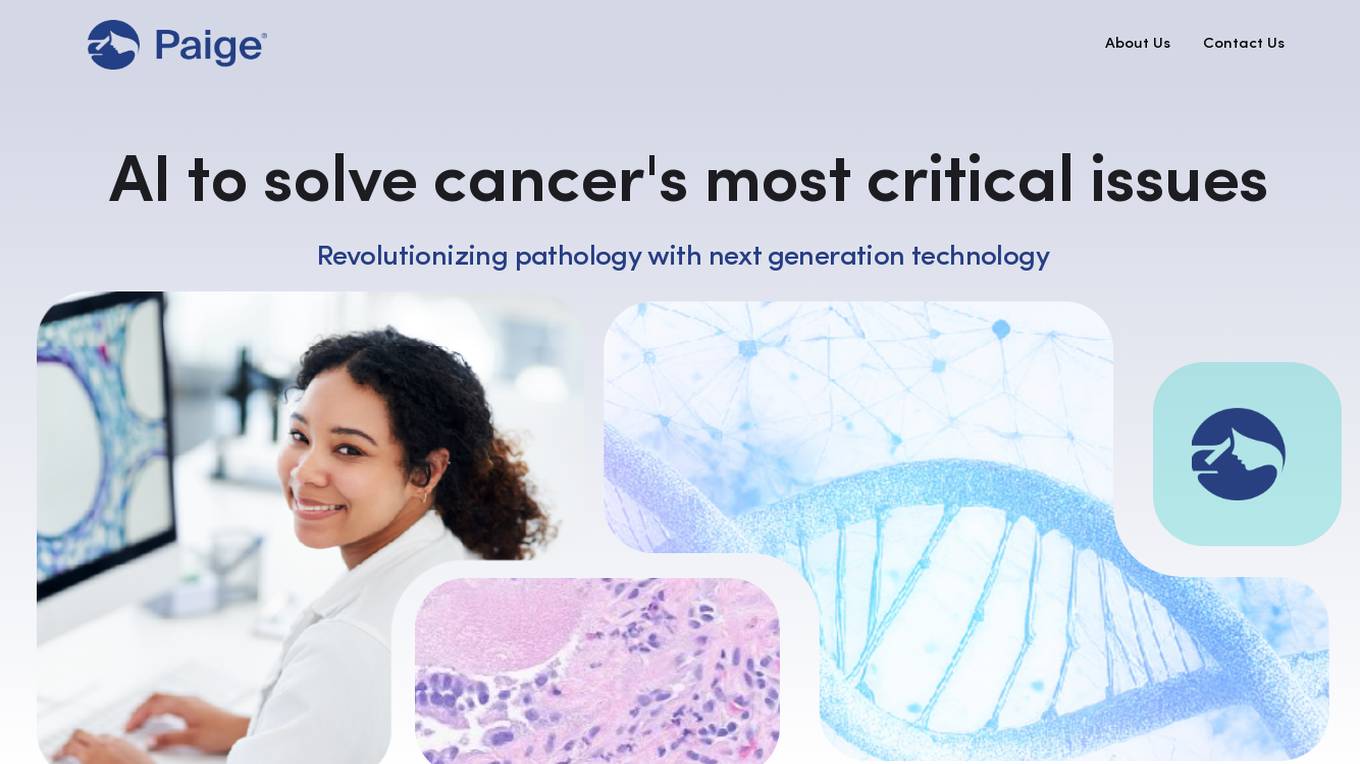
Paige AI
Paige is a leading AI company revolutionizing pathology with next-generation technology. They provide diagnostic and biomarker AI, predictive analytics technology, and AI-assisted applications to support cancer detection, subtyping, and molecular biomarker discovery from tissue samples. Paige offers a range of AI suites for prostate, breast, colon, and PanCancer, as well as the innovative Paige Alba™ multi-modal co-pilot. Their advanced AI technology and services help streamline AI development, optimize existing applications, and drive groundbreaking advancements in cancer care.
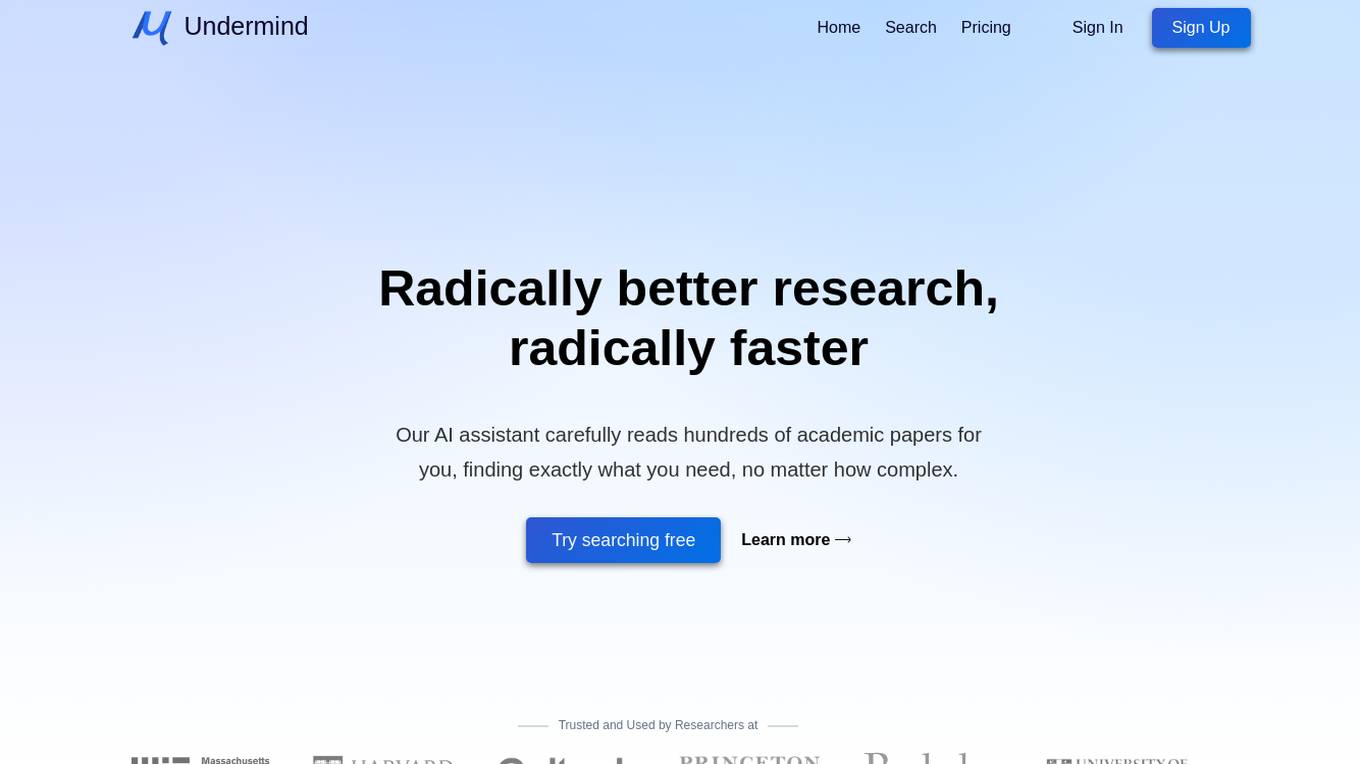
Undermind
Undermind is an AI-powered scientific research assistant that revolutionizes the way researchers access and analyze academic papers. By utilizing intelligent language models, Undermind reads and synthesizes information from hundreds of papers to provide accurate and comprehensive results. Researchers can describe their queries in natural language, and Undermind assists in finding relevant papers, brainstorming questions, and discovering crucial insights. Trusted by researchers across various fields, Undermind offers a unique approach to literature search, surpassing traditional search engines in accuracy and efficiency.

Salt AI
Salt AI is a development engine tailored for life sciences organizations, aiming to accelerate advancements in the field by enabling faster adoption and utilization of AI technologies. The platform offers reliable and reproducible AI processes, optimized for speed and efficiency, and promotes transparency and collaboration within workflows. With a focus on supporting best-in-class life sciences research models, Salt AI empowers users to enhance their understanding of biological processes through flexible and performant AI solutions.
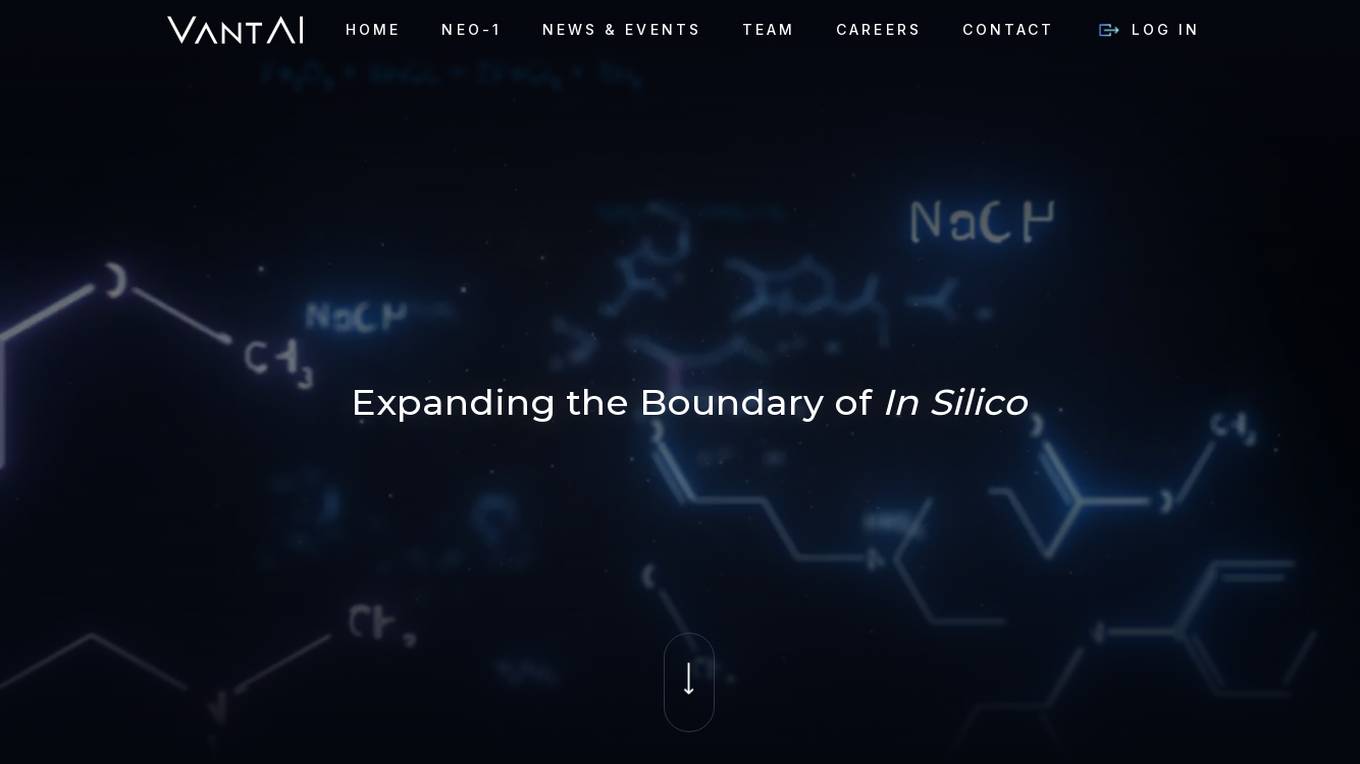
VantAI
VantAI is an AI application focused on generative AI-enabled drug discovery. Their mission is to unlock a new chapter in medicine by making protein interactions programmable. They have an integrated discovery platform with phase-shifting technologies designed to unlock the full potential of the proximity modulator modality. VantAI collaborates with industry leaders to build the future of therapeutic design. The company has launched Neo-1, the first AI model to rewire molecular interactions by unifying structure prediction and generation.
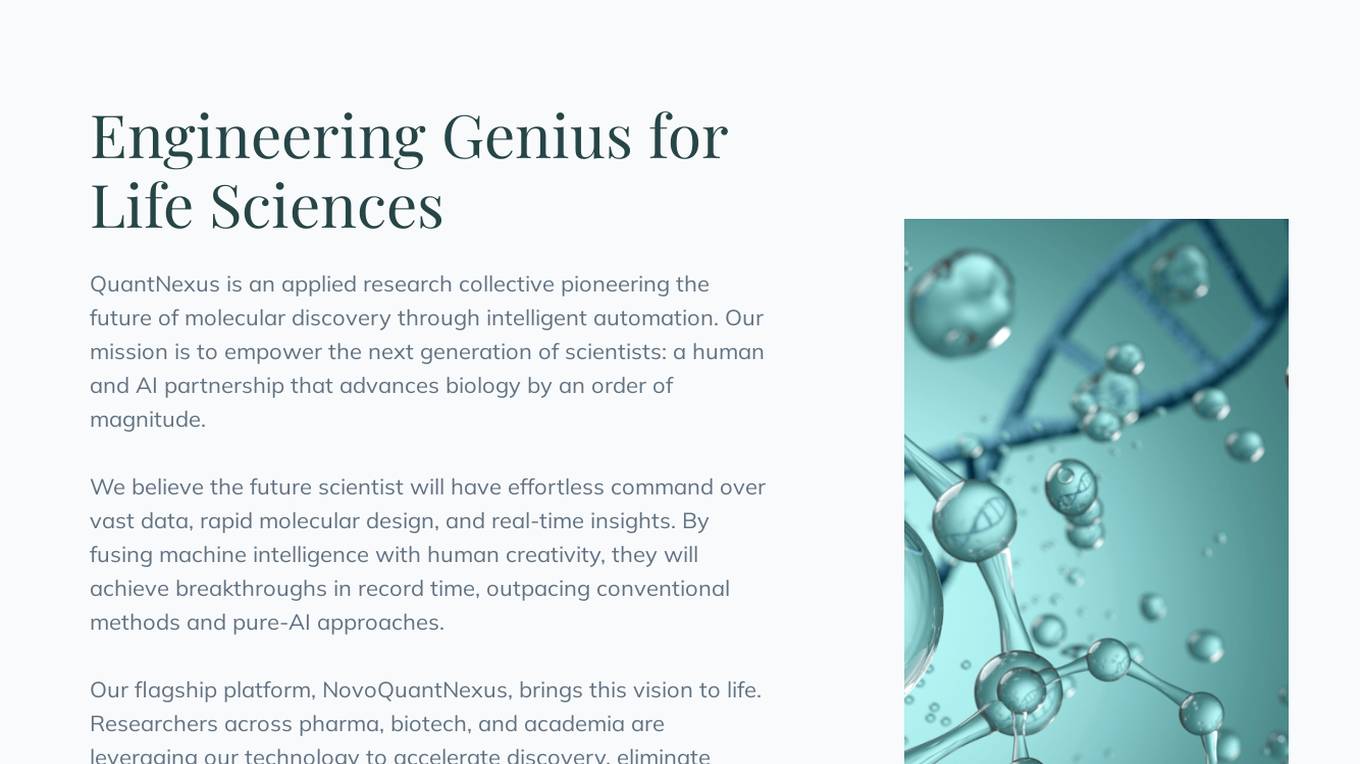
QuantNexus
QuantNexus is an applied research collective that pioneers the future of molecular discovery through intelligent automation. Their mission is to empower the next generation of scientists by creating a human and AI partnership that advances biology significantly. The platform, NovoQuantNexus, fuses machine intelligence with human creativity to achieve breakthroughs in record time, outpacing conventional methods and pure-AI approaches. Researchers in pharma, biotech, and academia are leveraging this technology to accelerate discovery and redefine possibilities in life sciences.
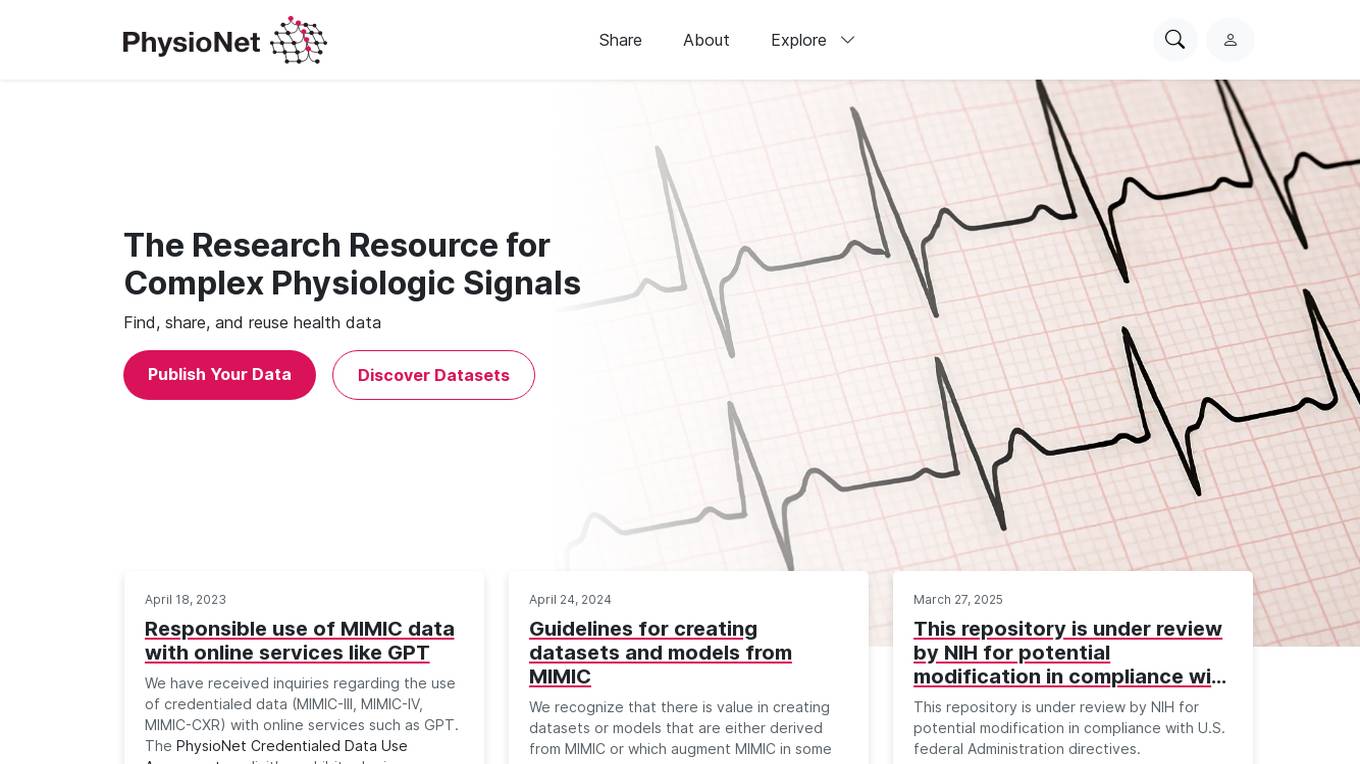
PhysioNet
PhysioNet is a research resource for complex physiologic signals that facilitates finding, sharing, and reusing health data. It provides access to various datasets and software tools for researchers in the medical field. PhysioNet aims to support the responsible use of data, including guidelines for creating datasets and models from sources like MIMIC. The platform also addresses access restrictions under the DOJ Data Security Program, ensuring compliance with legal obligations while supporting researchers in understanding and navigating policy changes.
18 - Open Source Tools
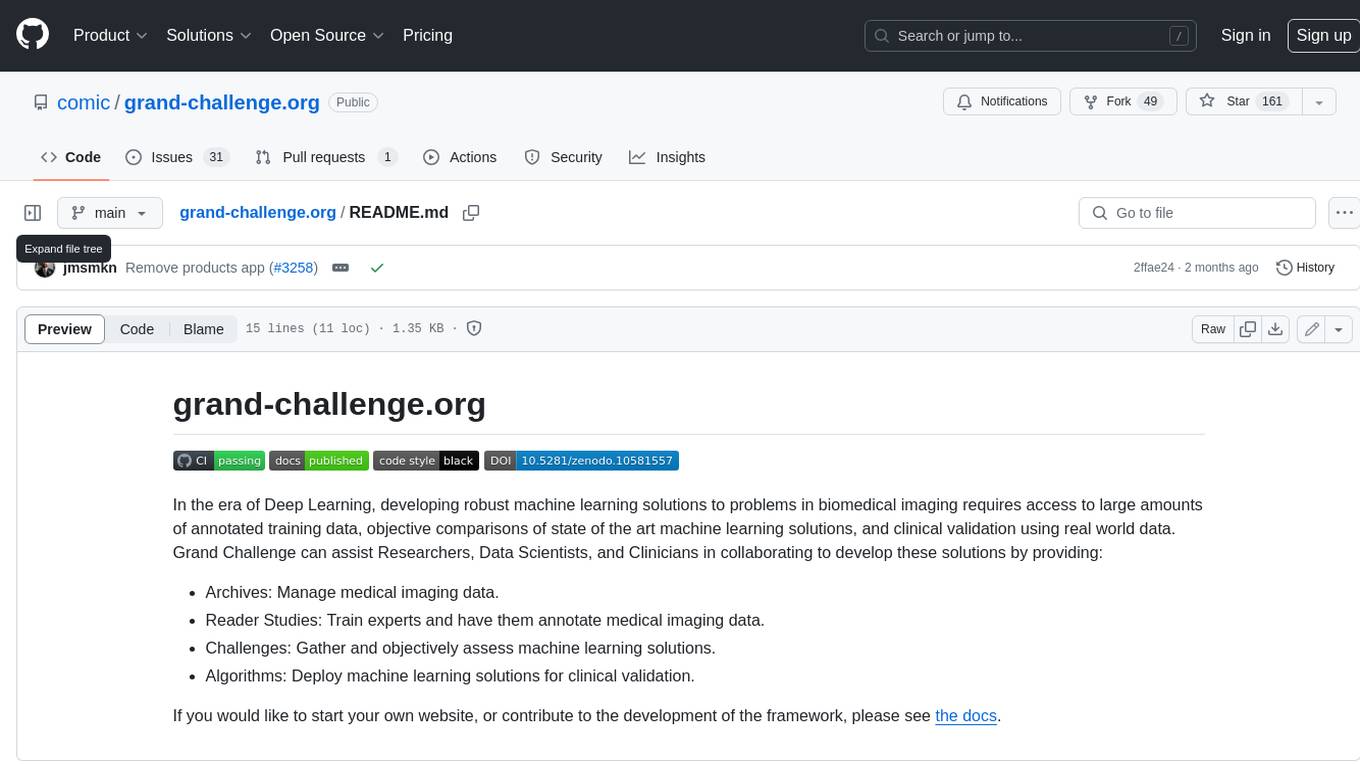
grand-challenge.org
Grand Challenge is a platform that provides access to large amounts of annotated training data, objective comparisons of state-of-the-art machine learning solutions, and clinical validation using real-world data. It assists researchers, data scientists, and clinicians in collaborating to develop robust machine learning solutions to problems in biomedical imaging.
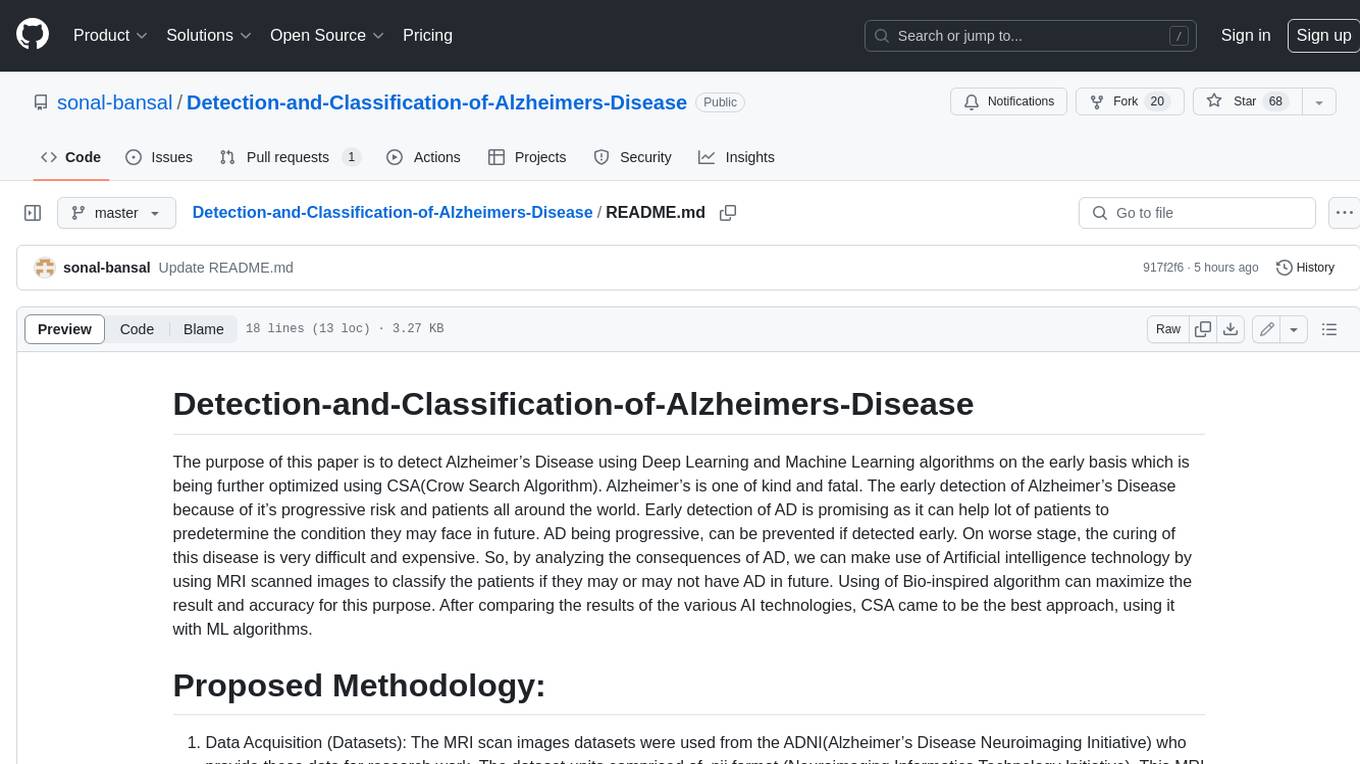
Detection-and-Classification-of-Alzheimers-Disease
This tool is designed to detect and classify Alzheimer's Disease using Deep Learning and Machine Learning algorithms on an early basis, which is further optimized using the Crow Search Algorithm (CSA). Alzheimer's is a fatal disease, and early detection is crucial for patients to predetermine their condition and prevent its progression. By analyzing MRI scanned images using Artificial Intelligence technology, this tool can classify patients who may or may not develop AD in the future. The CSA algorithm, combined with ML algorithms, has proven to be the most effective approach for this purpose.
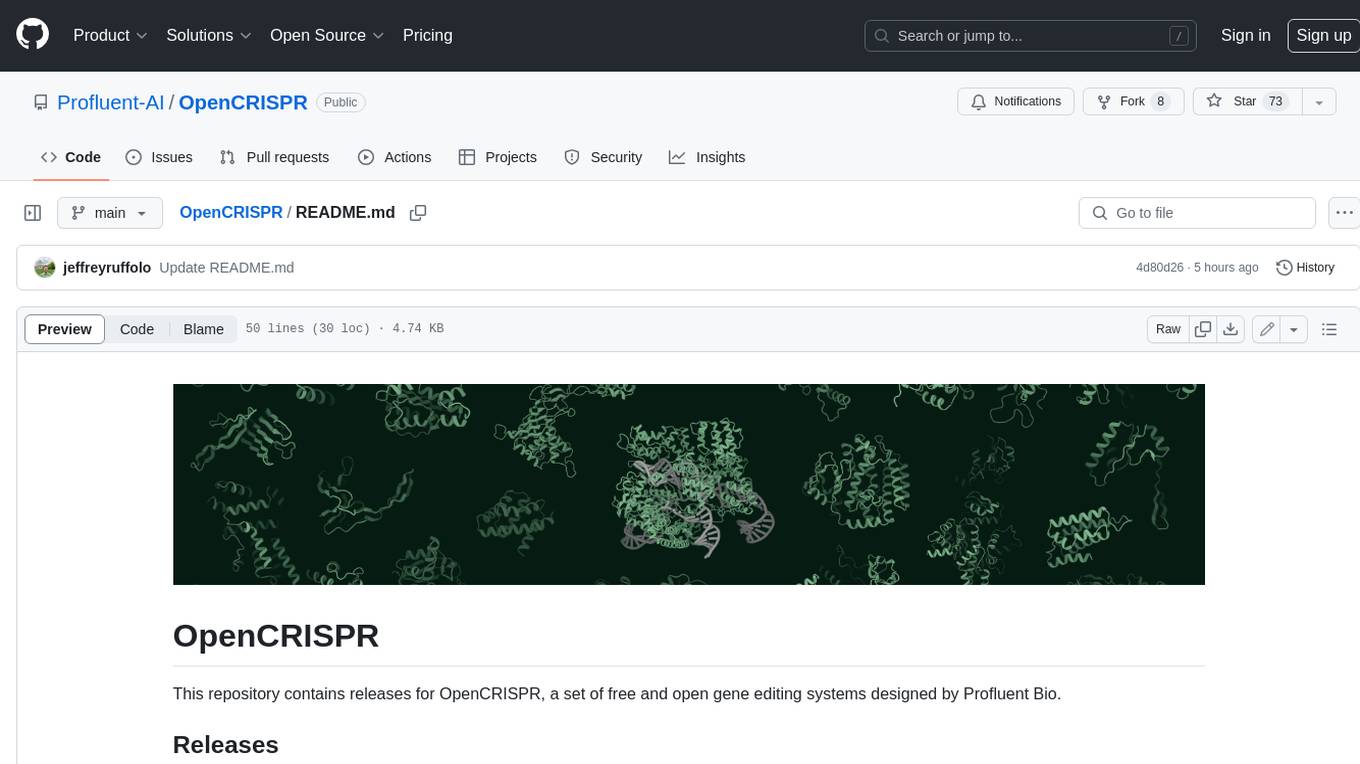
OpenCRISPR
OpenCRISPR is a set of free and open gene editing systems designed by Profluent Bio. The OpenCRISPR-1 protein maintains the prototypical architecture of a Type II Cas9 nuclease but is hundreds of mutations away from SpCas9 or any other known natural CRISPR-associated protein. You can view OpenCRISPR-1 as a drop-in replacement for many protocols that need a cas9-like protein with an NGG PAM and you can even use it with canonical SpCas9 gRNAs. OpenCRISPR-1 can be fused in a deactivated or nickase format for next generation gene editing techniques like base, prime, or epigenome editing.
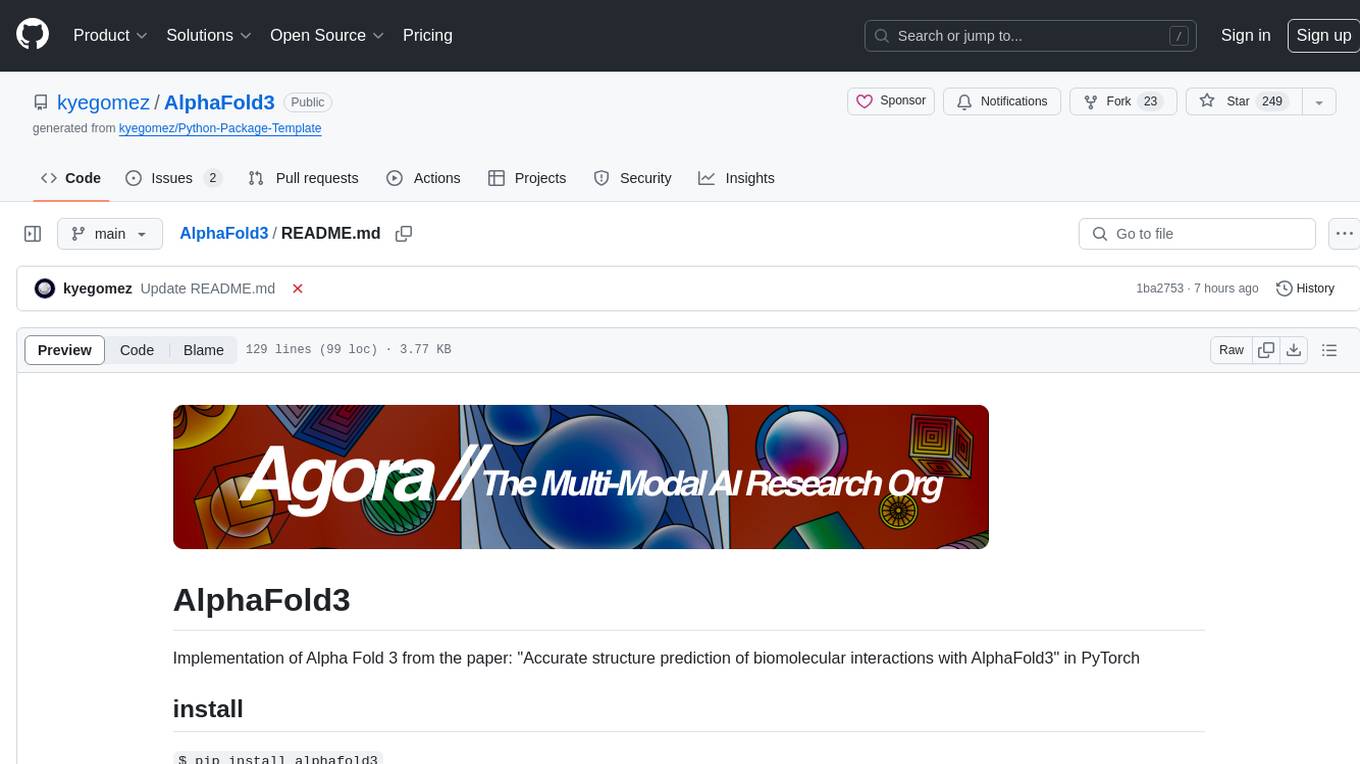
AlphaFold3
AlphaFold3 is an implementation of the Alpha Fold 3 model in PyTorch for accurate structure prediction of biomolecular interactions. It includes modules for genetic diffusion and full model examples for forward pass computations. The tool allows users to generate random pair and single representations, operate on atomic coordinates, and perform structure predictions based on input tensors. The implementation also provides functionalities for training and evaluating the model.
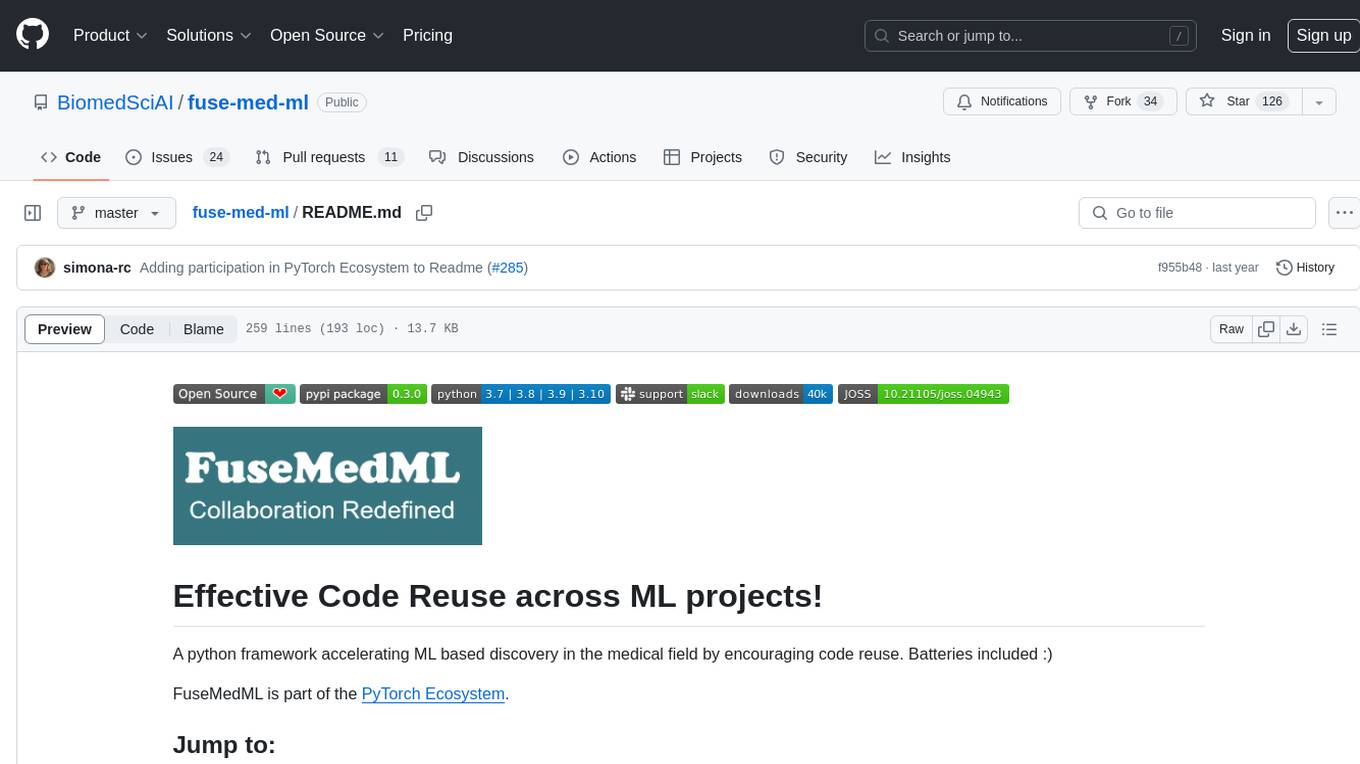
fuse-med-ml
FuseMedML is a Python framework designed to accelerate machine learning-based discovery in the medical field by promoting code reuse. It provides a flexible design concept where data is stored in a nested dictionary, allowing easy handling of multi-modality information. The framework includes components for creating custom models, loss functions, metrics, and data processing operators. Additionally, FuseMedML offers 'batteries included' key components such as fuse.data for data processing, fuse.eval for model evaluation, and fuse.dl for reusable deep learning components. It supports PyTorch and PyTorch Lightning libraries and encourages the creation of domain extensions for specific medical domains.
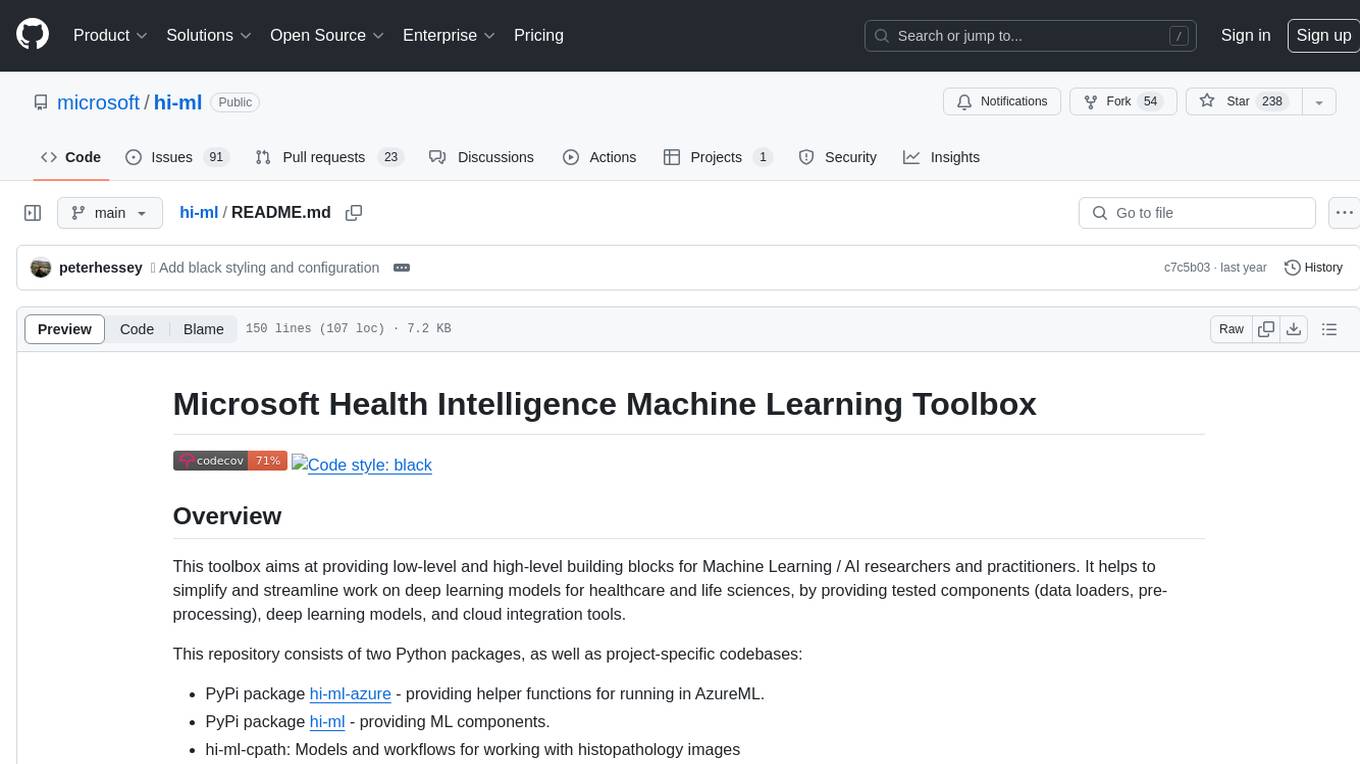
hi-ml
The Microsoft Health Intelligence Machine Learning Toolbox is a repository that provides low-level and high-level building blocks for Machine Learning / AI researchers and practitioners. It simplifies and streamlines work on deep learning models for healthcare and life sciences by offering tested components such as data loaders, pre-processing tools, deep learning models, and cloud integration utilities. The repository includes two Python packages, 'hi-ml-azure' for helper functions in AzureML, 'hi-ml' for ML components, and 'hi-ml-cpath' for models and workflows related to histopathology images.
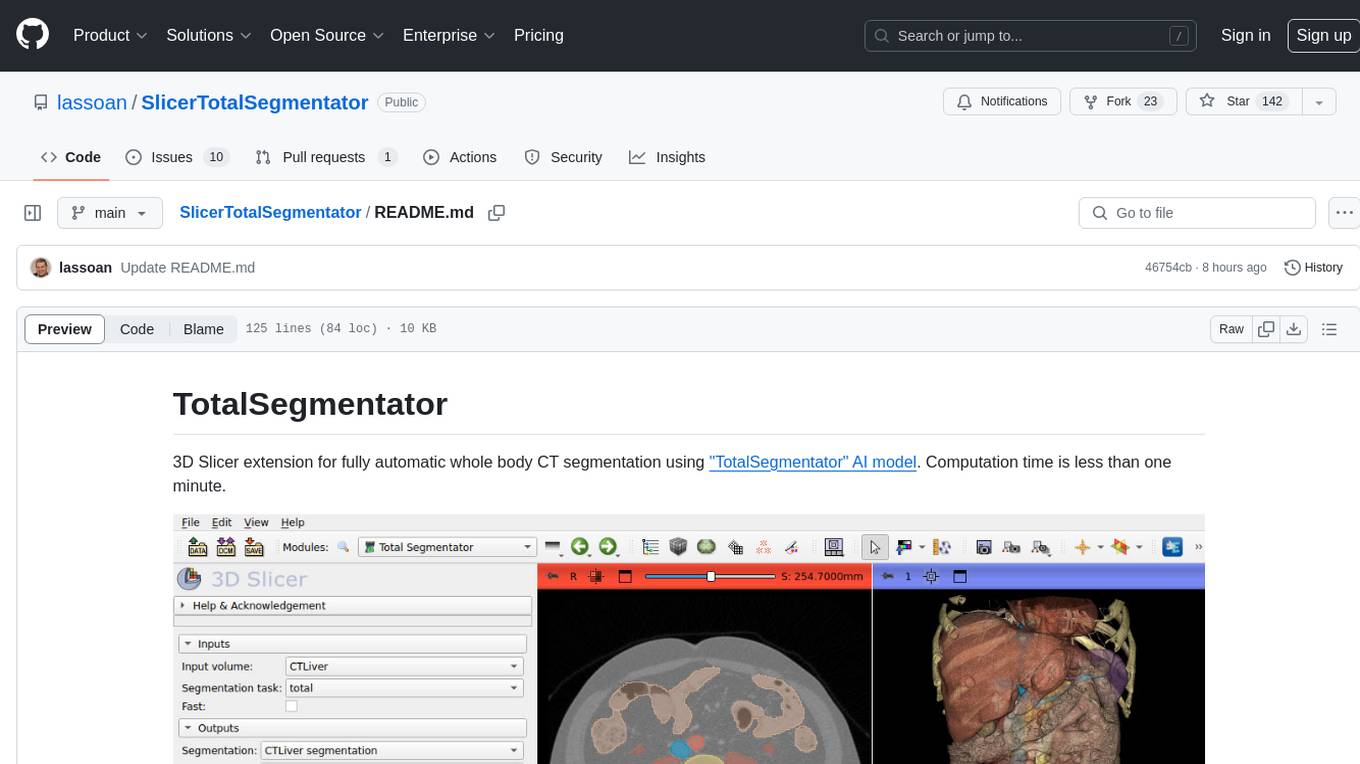
SlicerTotalSegmentator
TotalSegmentator is a 3D Slicer extension designed for fully automatic whole body CT segmentation using the 'TotalSegmentator' AI model. The computation time is less than one minute, making it efficient for research purposes. Users can set up GPU acceleration for faster segmentation. The tool provides a user-friendly interface for loading CT images, creating segmentations, and displaying results in 3D. Troubleshooting steps are available for common issues such as failed computation, GPU errors, and inaccurate segmentations. Contributions to the extension are welcome, following 3D Slicer contribution guidelines.
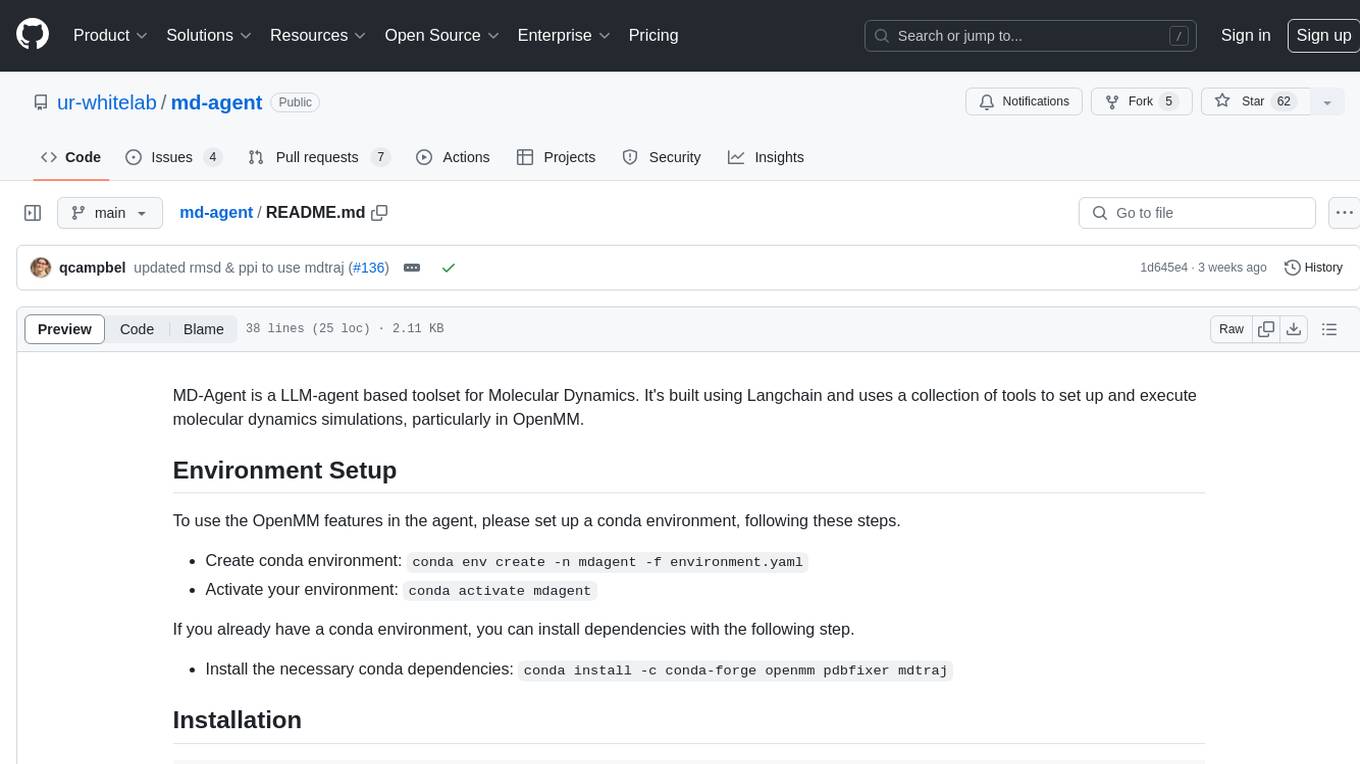
md-agent
MD-Agent is a LLM-agent based toolset for Molecular Dynamics. It uses Langchain and a collection of tools to set up and execute molecular dynamics simulations, particularly in OpenMM. The tool assists in environment setup, installation, and usage by providing detailed steps. It also requires API keys for certain functionalities, such as OpenAI and paper-qa for literature searches. Contributions to the project are welcome, with a detailed Contributor's Guide available for interested individuals.
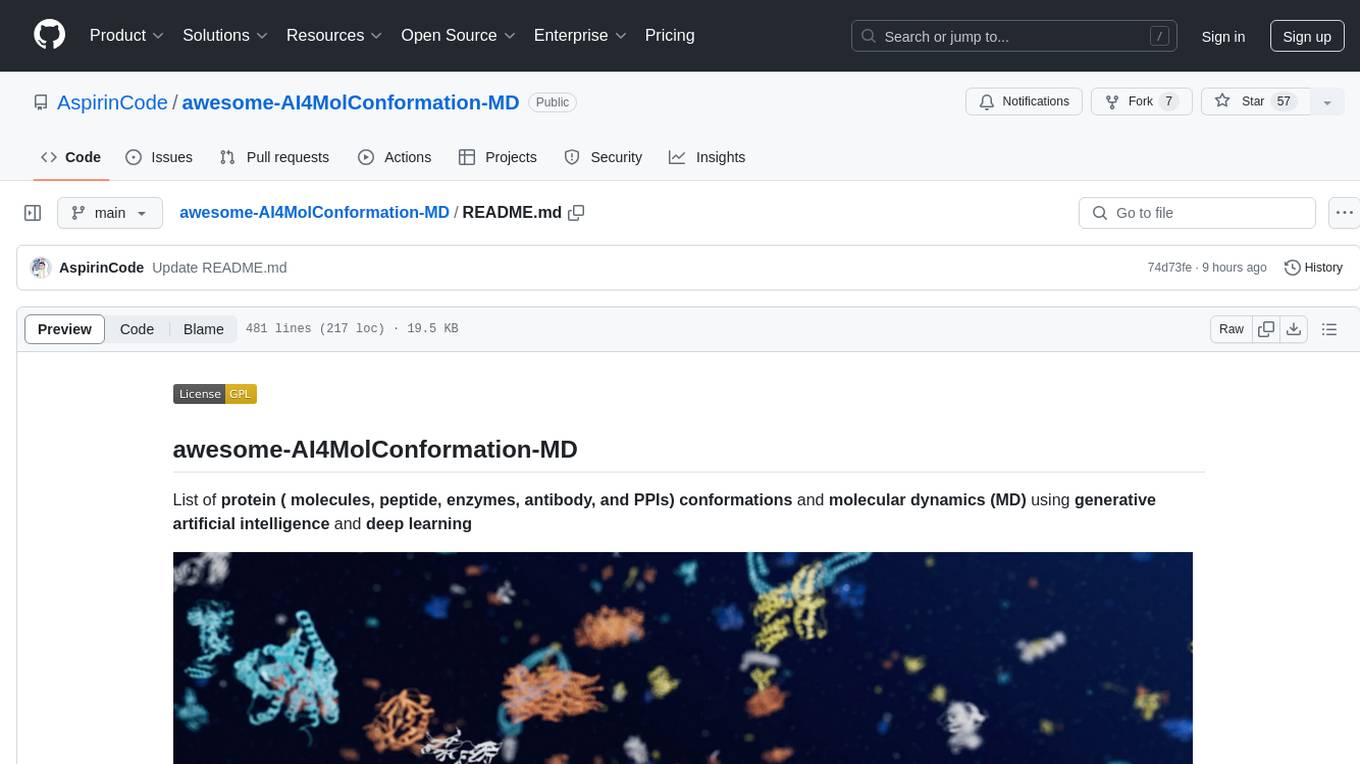
awesome-AI4MolConformation-MD
The 'awesome-AI4MolConformation-MD' repository focuses on protein conformations and molecular dynamics using generative artificial intelligence and deep learning. It provides resources, reviews, datasets, packages, and tools related to AI-driven molecular dynamics simulations. The repository covers a wide range of topics such as neural networks potentials, force fields, AI engines/frameworks, trajectory analysis, visualization tools, and various AI-based models for protein conformational sampling. It serves as a comprehensive guide for researchers and practitioners interested in leveraging AI for studying molecular structures and dynamics.
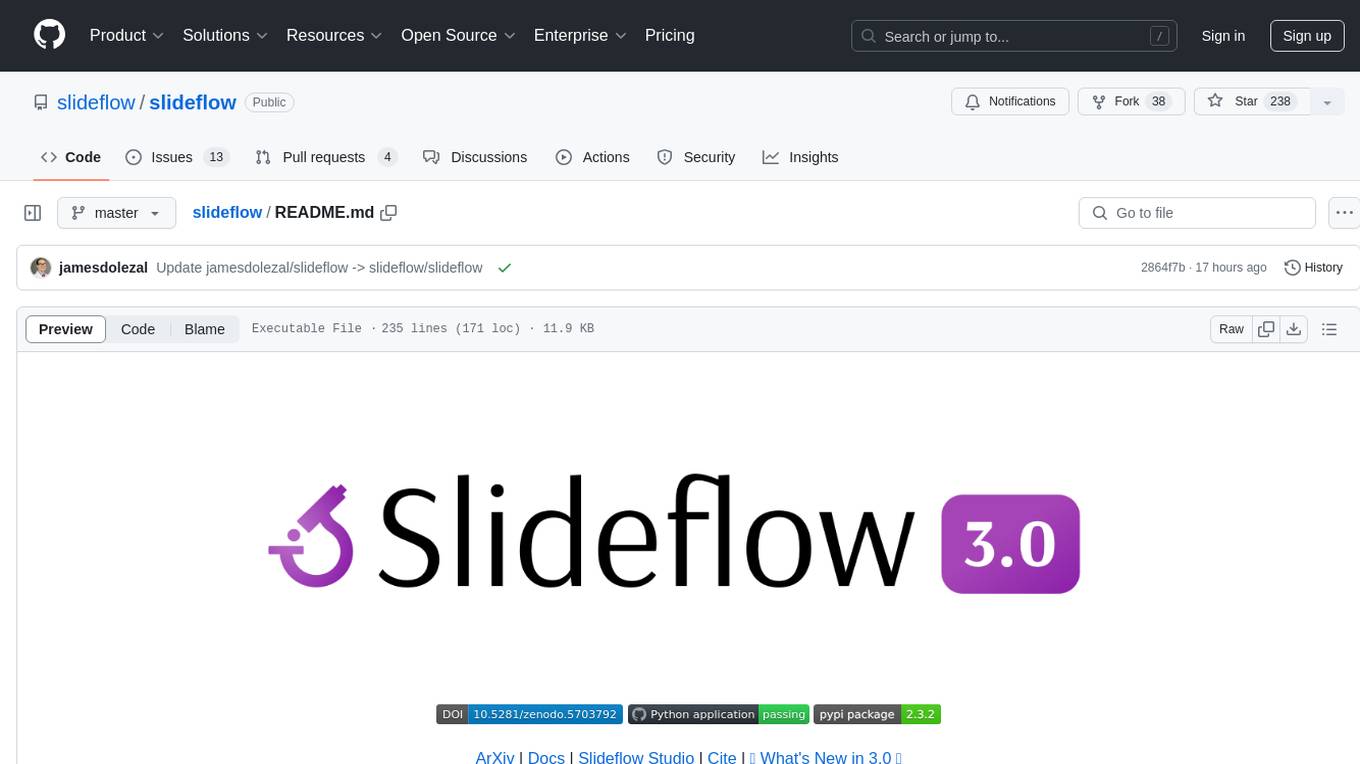
slideflow
Slideflow is a deep learning library for digital pathology, offering a user-friendly interface for model development. It is designed for medical researchers and AI enthusiasts, providing an accessible platform for developing state-of-the-art pathology models. Slideflow offers customizable training pipelines, robust slide processing and stain normalization toolkit, support for weakly-supervised or strongly-supervised labels, built-in foundation models, multiple-instance learning, self-supervised learning, generative adversarial networks, explainability tools, layer activation analysis tools, uncertainty quantification, interactive user interface for model deployment, and more. It supports both PyTorch and Tensorflow, with optional support for Libvips for slide reading. Slideflow can be installed via pip, Docker container, or from source, and includes non-commercial add-ons for additional tools and pretrained models. It allows users to create projects, extract tiles from slides, train models, and provides evaluation tools like heatmaps and mosaic maps.
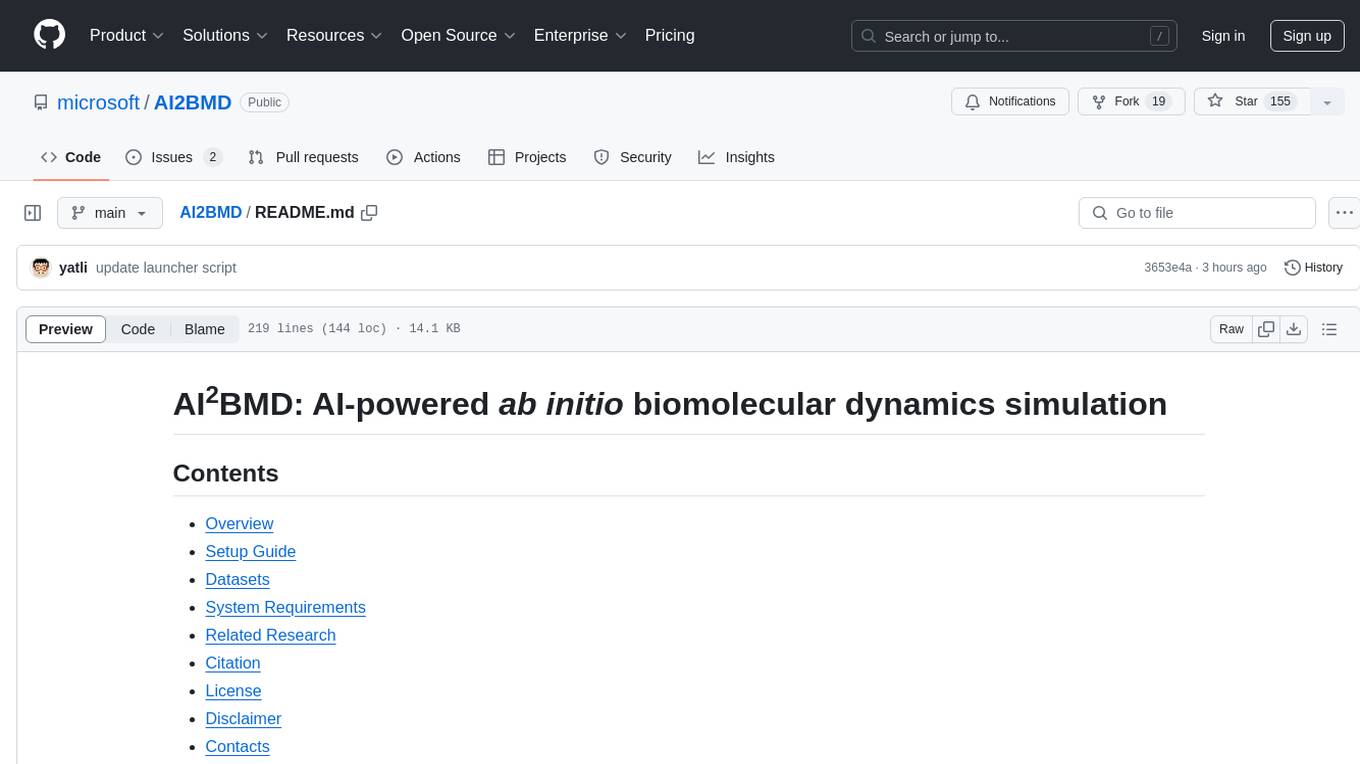
AI2BMD
AI2BMD is a program for efficiently simulating protein molecular dynamics with ab initio accuracy. The repository contains datasets, simulation programs, and public materials related to AI2BMD. It provides a Docker image for easy deployment and a standalone launcher program. Users can run simulations by downloading the launcher script and specifying simulation parameters. The repository also includes ready-to-use protein structures for testing. AI2BMD is designed for x86-64 GNU/Linux systems with recommended hardware specifications. The related research includes model architectures like ViSNet, Geoformer, and fine-grained force metrics for MLFF. Citation information and contact details for the AI2BMD Team are provided.
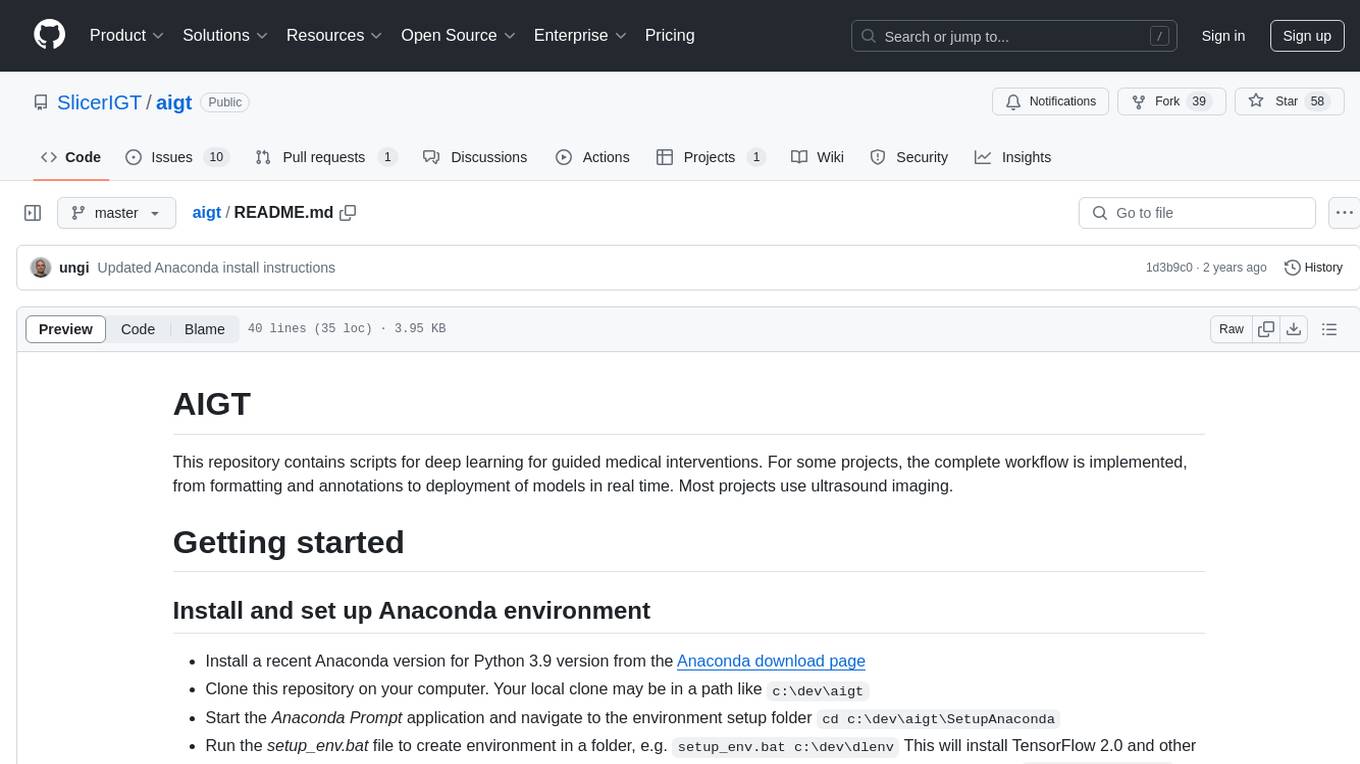
aigt
AIGT is a repository containing scripts for deep learning in guided medical interventions, focusing on ultrasound imaging. It provides a complete workflow from formatting and annotations to real-time model deployment. Users can set up an Anaconda environment, run Slicer notebooks, acquire tracked ultrasound data, and process exported data for training. The repository includes tools for segmentation, image export, and annotation creation.
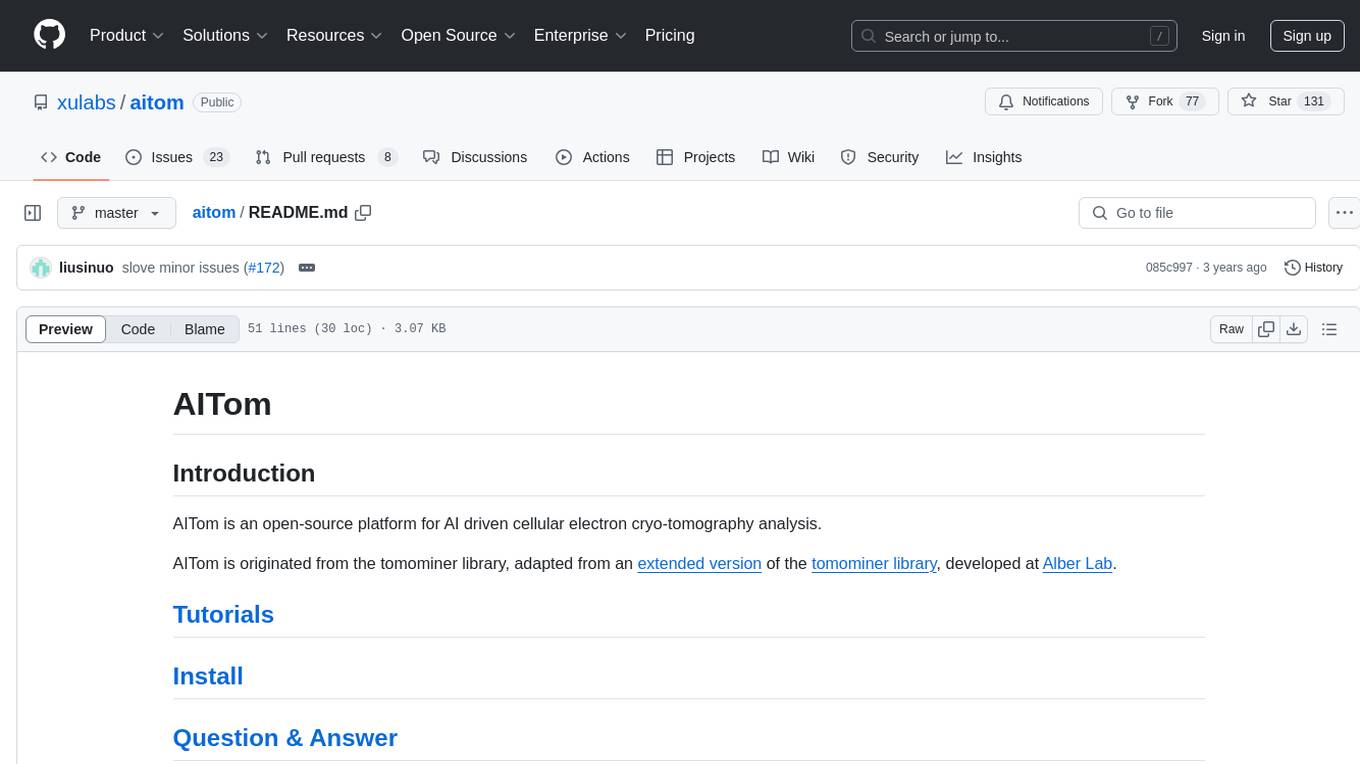
aitom
AITom is an open-source platform for AI-driven cellular electron cryo-tomography analysis. It is developed to process large amounts of Cryo-ET data, reconstruct, detect, classify, recover, and spatially model different cellular components using state-of-the-art machine learning approaches. The platform aims to automate cellular structure discovery and provide new insights into molecular biology and medical applications.
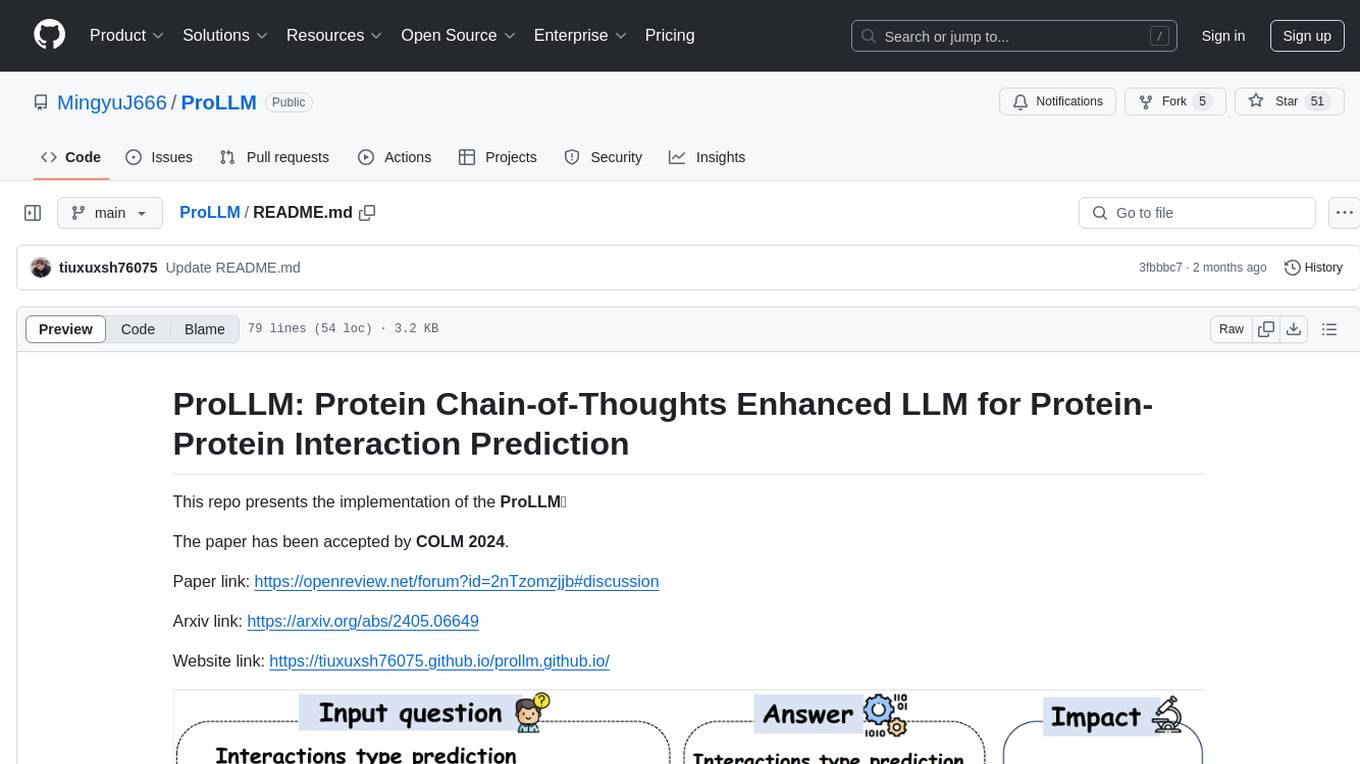
ProLLM
ProLLM is a framework that leverages Large Language Models to interpret and analyze protein sequences and interactions through natural language processing. It introduces the Protein Chain of Thought (ProCoT) method to transform complex protein interaction data into intuitive prompts, enhancing predictive accuracy by incorporating protein-specific embeddings and fine-tuning on domain-specific datasets.
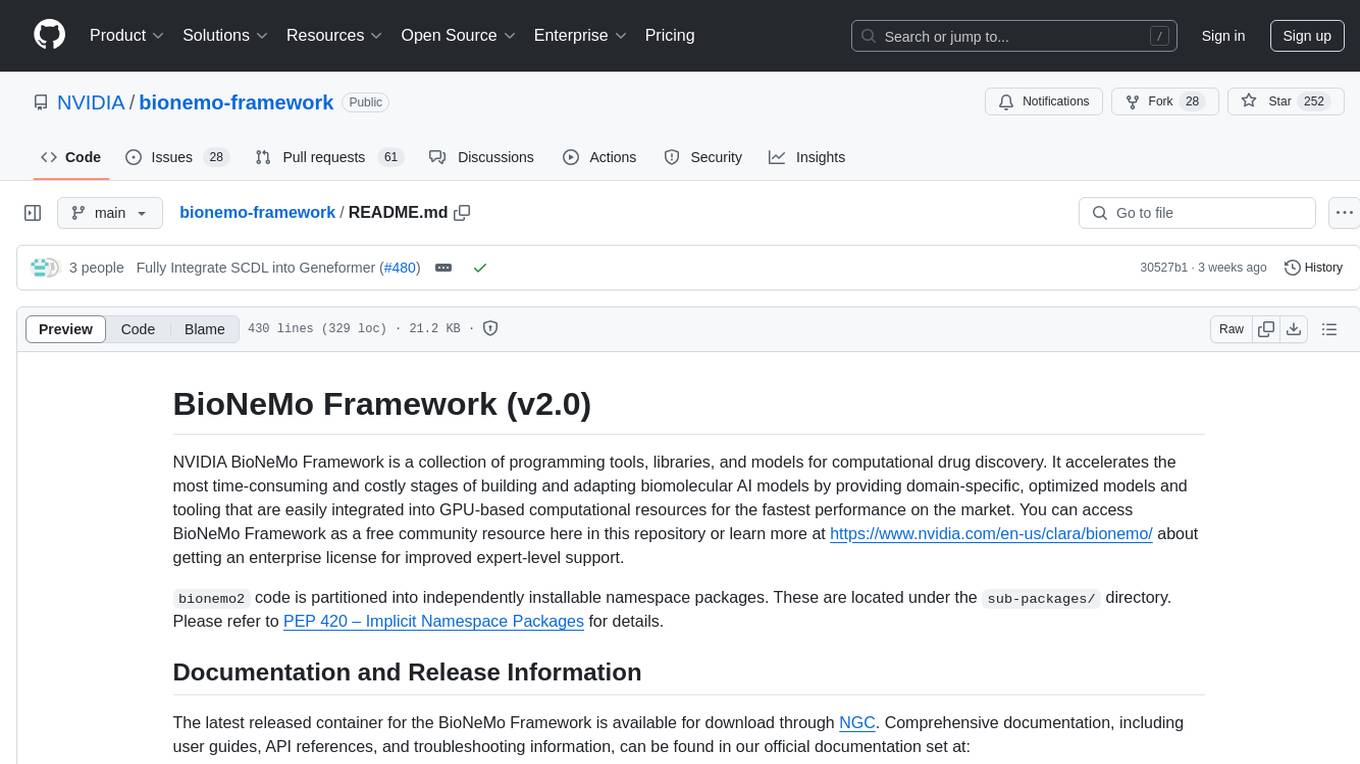
bionemo-framework
NVIDIA BioNeMo Framework is a collection of programming tools, libraries, and models for computational drug discovery. It accelerates building and adapting biomolecular AI models by providing domain-specific, optimized models and tooling for GPU-based computational resources. The framework offers comprehensive documentation and support for both community and enterprise users.

HuaTuoAI
HuaTuoAI is an artificial intelligence image classification system specifically designed for traditional Chinese medicine. It utilizes deep learning techniques, such as Convolutional Neural Networks (CNN), to accurately classify Chinese herbs and ingredients based on input images. The project aims to unlock the secrets of plants, depict the unknown realm of Chinese medicine using technology and intelligence, and perpetuate ancient cultural heritage.

Biomni
Biomni is a general-purpose biomedical AI agent designed to autonomously execute a wide range of research tasks across diverse biomedical subfields. By integrating cutting-edge large language model (LLM) reasoning with retrieval-augmented planning and code-based execution, Biomni helps scientists dramatically enhance research productivity and generate testable hypotheses.
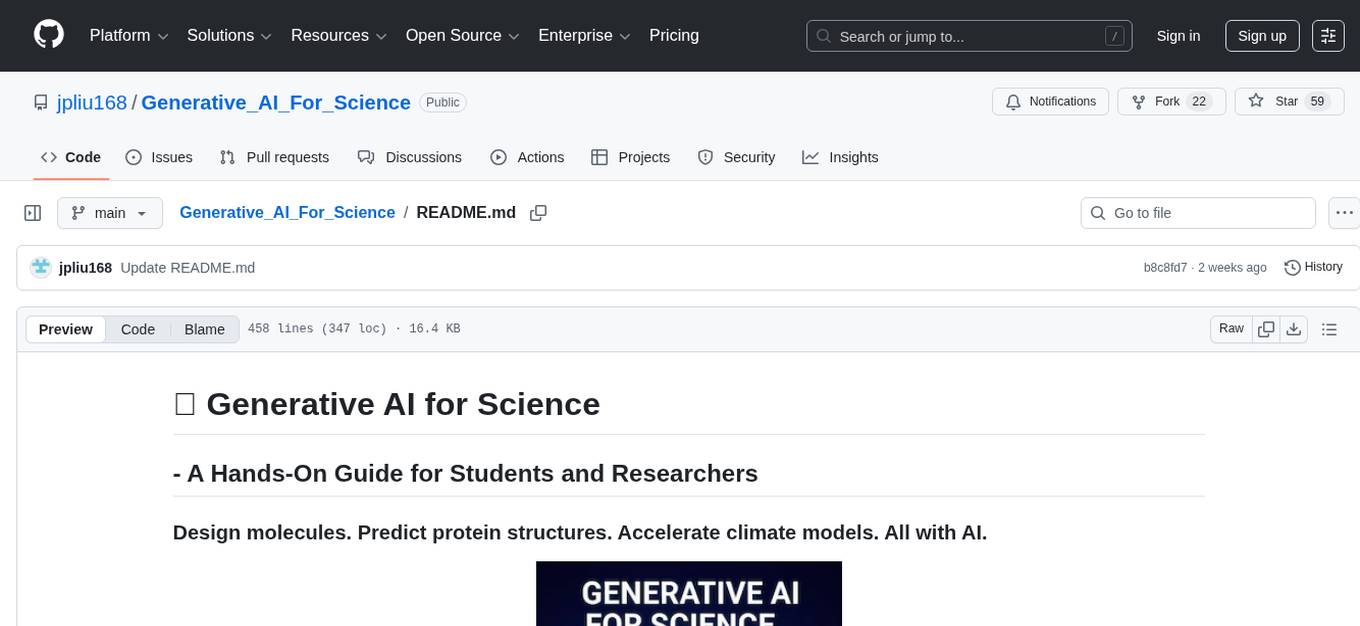
Generative_AI_For_Science
Generative AI for Science is a comprehensive, hands-on guide for researchers, students, and practitioners who want to apply cutting-edge AI techniques to scientific discovery. The book bridges the gap between AI/ML expertise and domain science, providing practical implementations across chemistry, biology, physics, geoscience, and beyond. It covers key AI architectures like Transformers, Diffusion Models, VAEs, and GNNs, and teaches how to apply generative models to problems in climate science, drug discovery, genomics, materials science, and more. The book also emphasizes best practices around ethics, reproducibility, and deployment, helping readers develop the intuition to know when and how to apply AI to scientific research.
25 - OpenAI Gpts
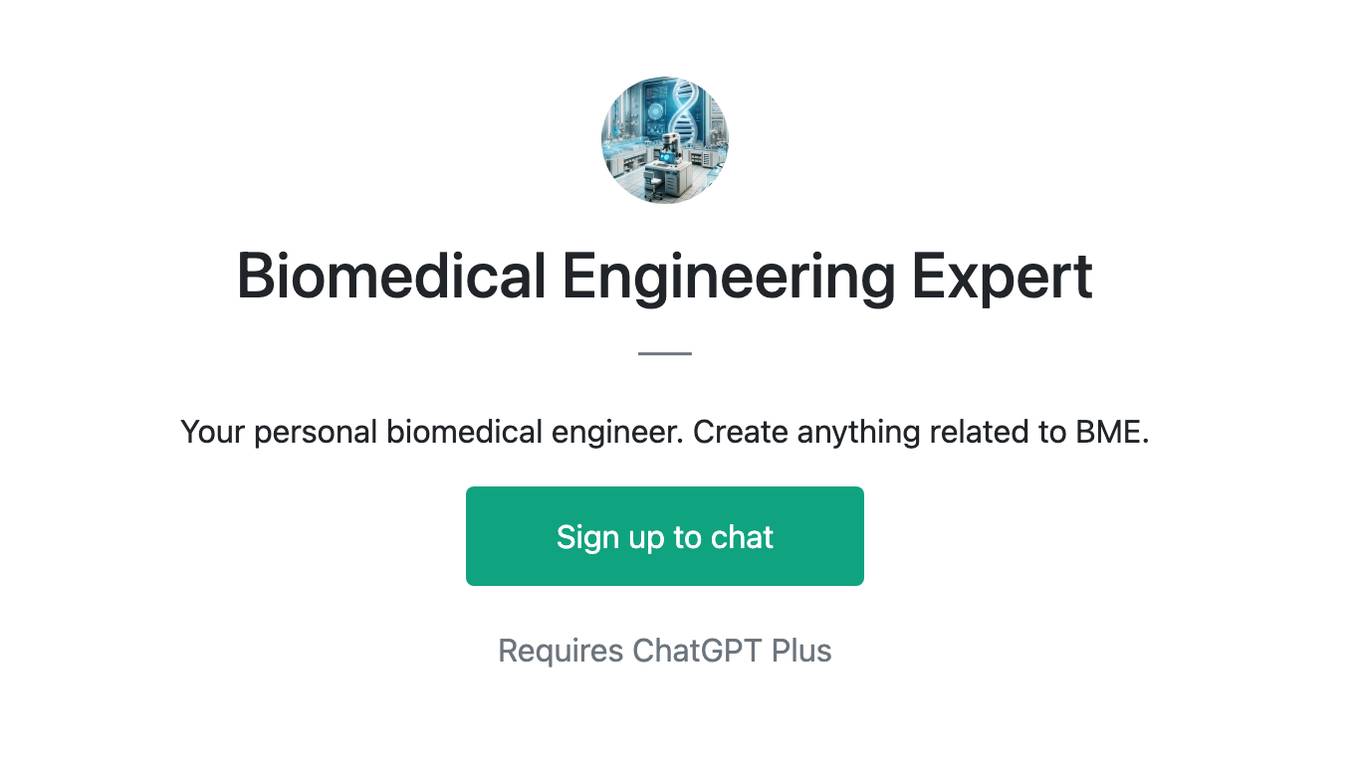
Biomedical Engineering Expert
Your personal biomedical engineer. Create anything related to BME.
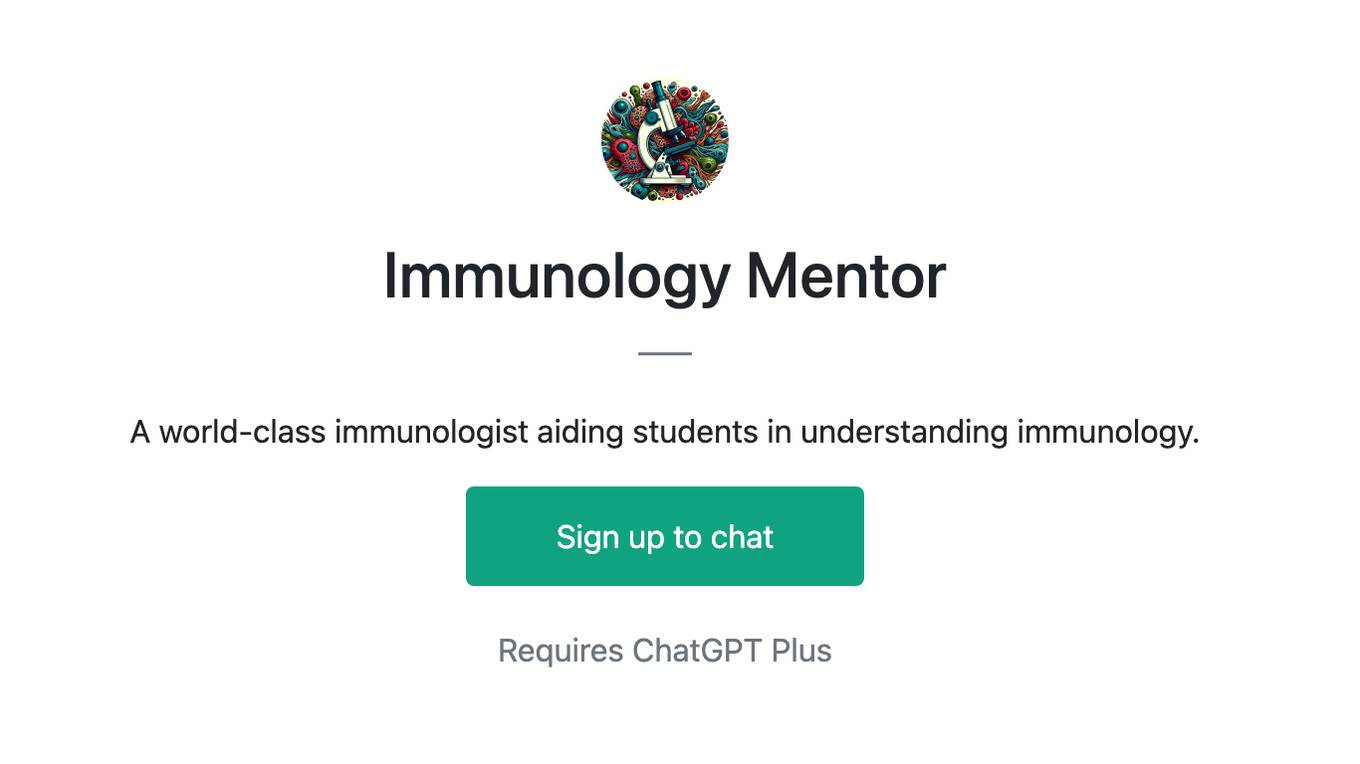
Immunology Mentor
A world-class immunologist aiding students in understanding immunology.
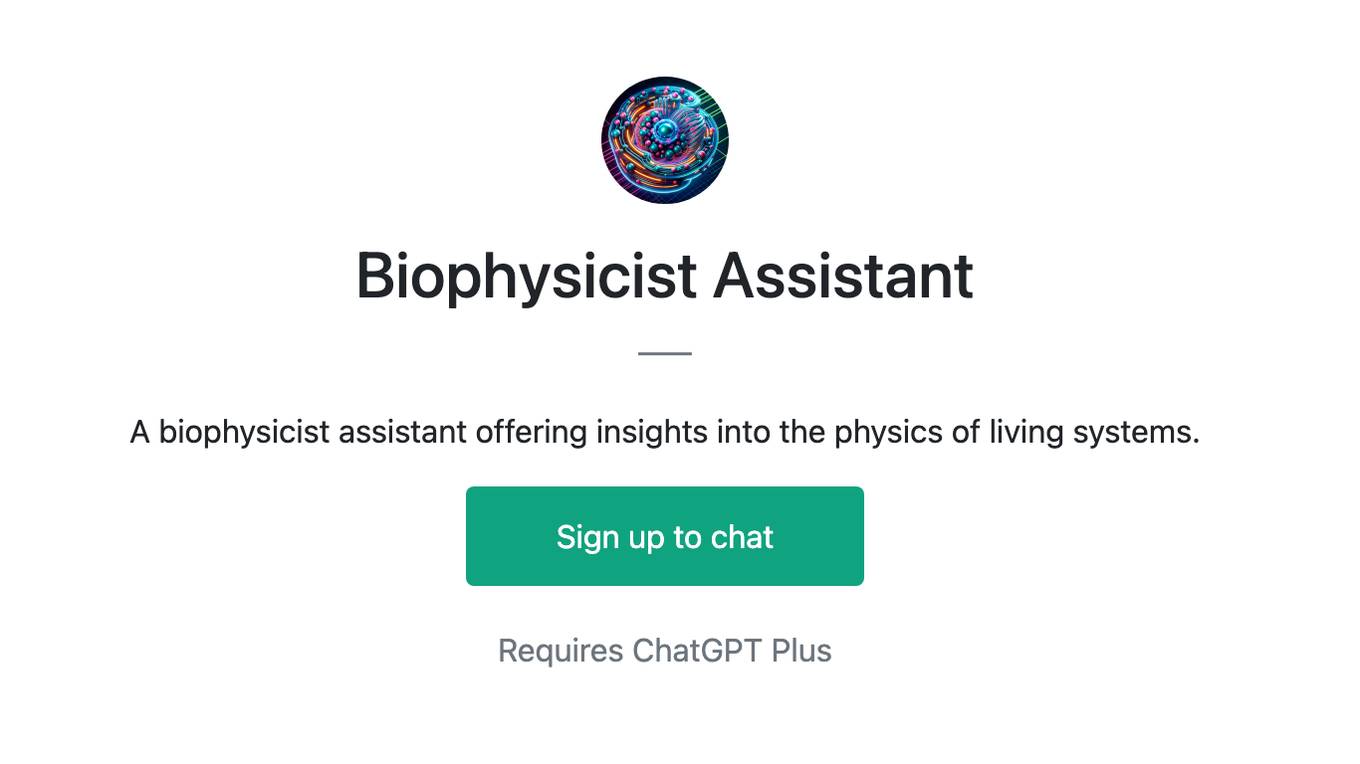
Biophysicist Assistant
A biophysicist assistant offering insights into the physics of living systems.
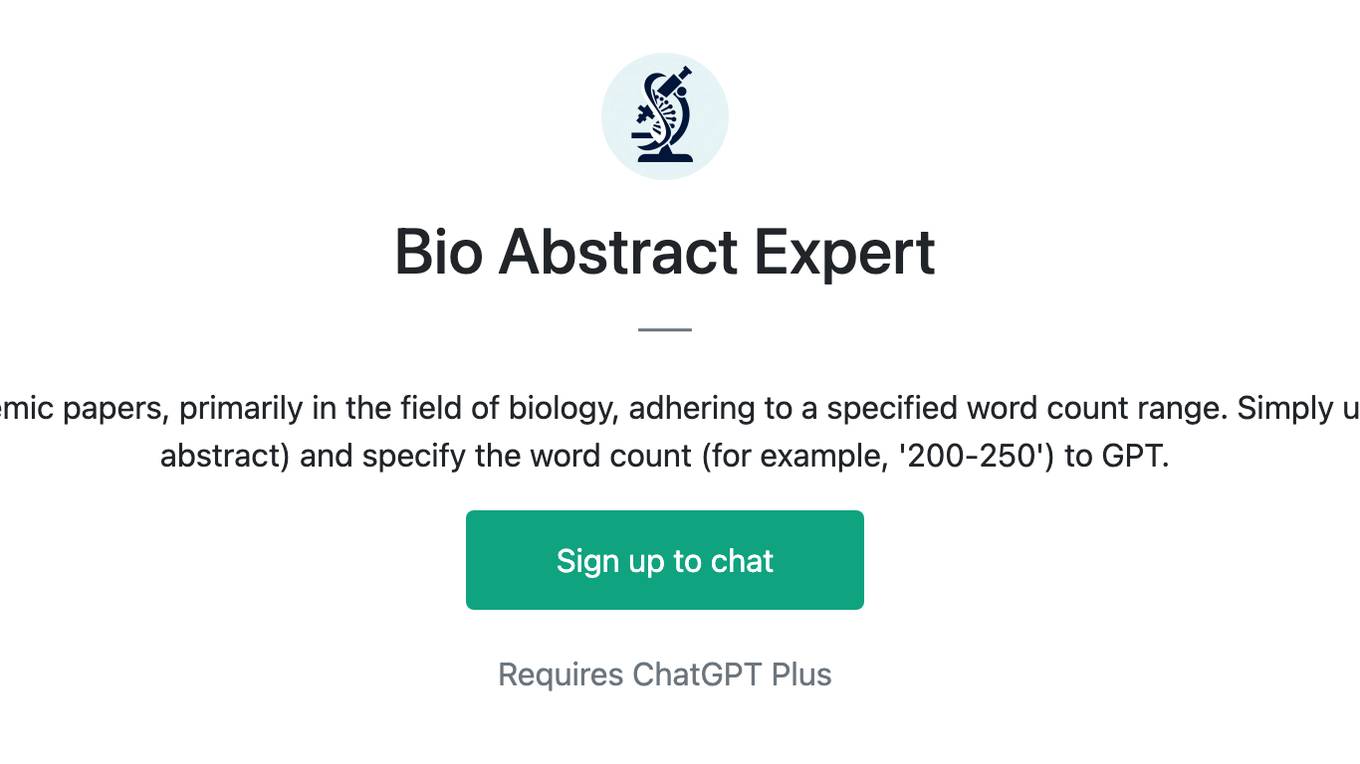
Bio Abstract Expert
Generate a structured abstract for academic papers, primarily in the field of biology, adhering to a specified word count range. Simply upload your manuscript file (without the abstract) and specify the word count (for example, '200-250') to GPT.

Drug Delivery Systems Advisor
An expert in Drug Delivery Systems Industry, providing in-depth, accurate insights.
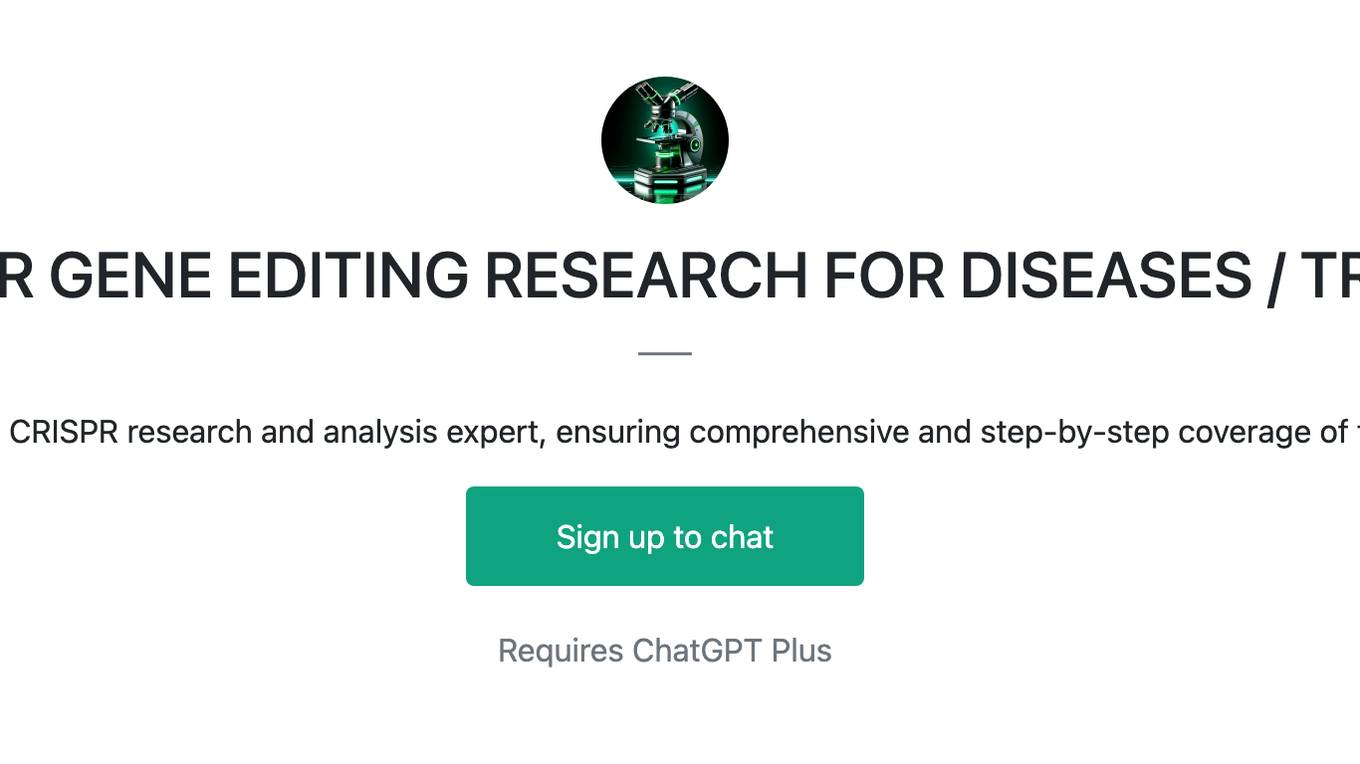
CRISPR GENE EDITING RESEARCH FOR DISEASES / TRAITS
In-depth CRISPR research and analysis expert, ensuring comprehensive and step-by-step coverage of topics.
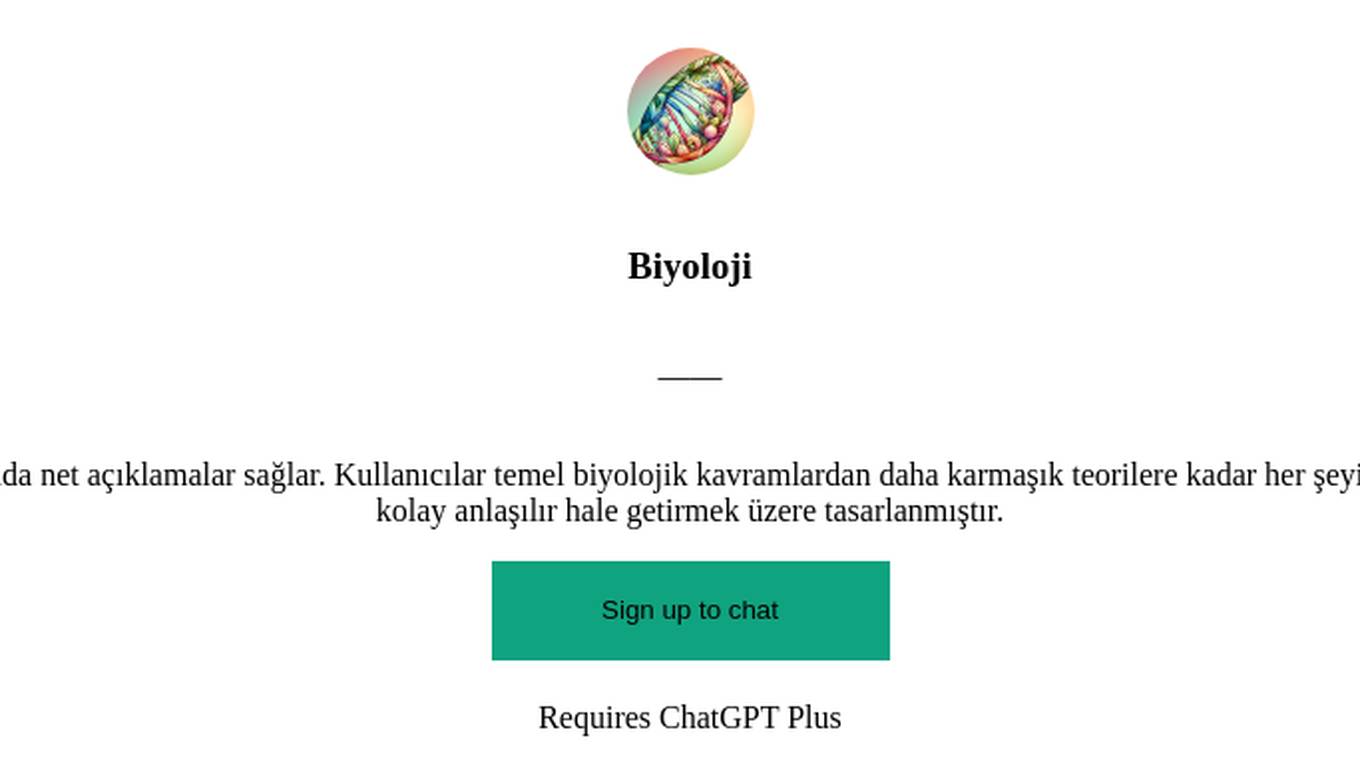
Biyoloji
Bu program, çok çeşitli biyoloji konuları hakkında net açıklamalar sağlar. Kullanıcılar temel biyolojik kavramlardan daha karmaşık teorilere kadar her şeyi öğrenmeyi bekleyebilirler. Biyolojiyi herkes için kolay anlaşılır hale getirmek üzere tasarlanmıştır.
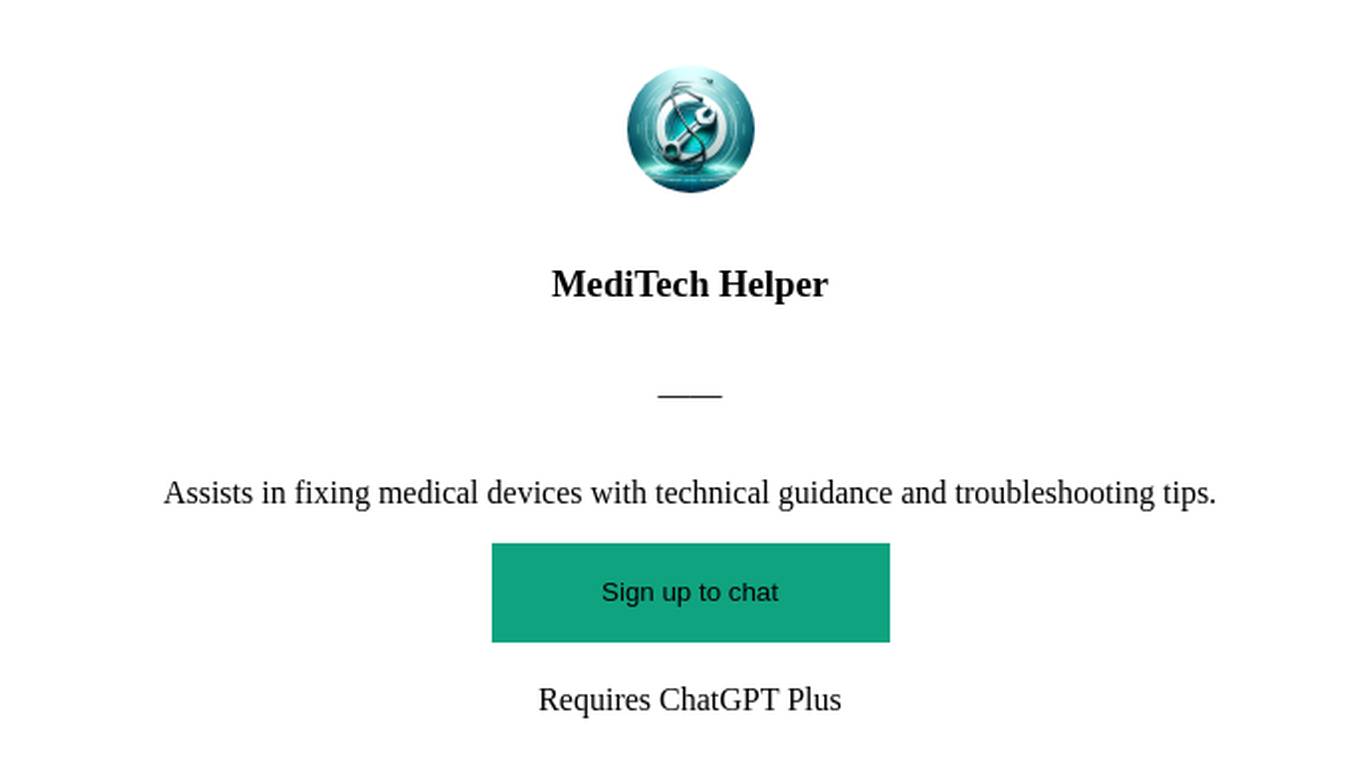
MediTech Helper
Assists in fixing medical devices with technical guidance and troubleshooting tips.
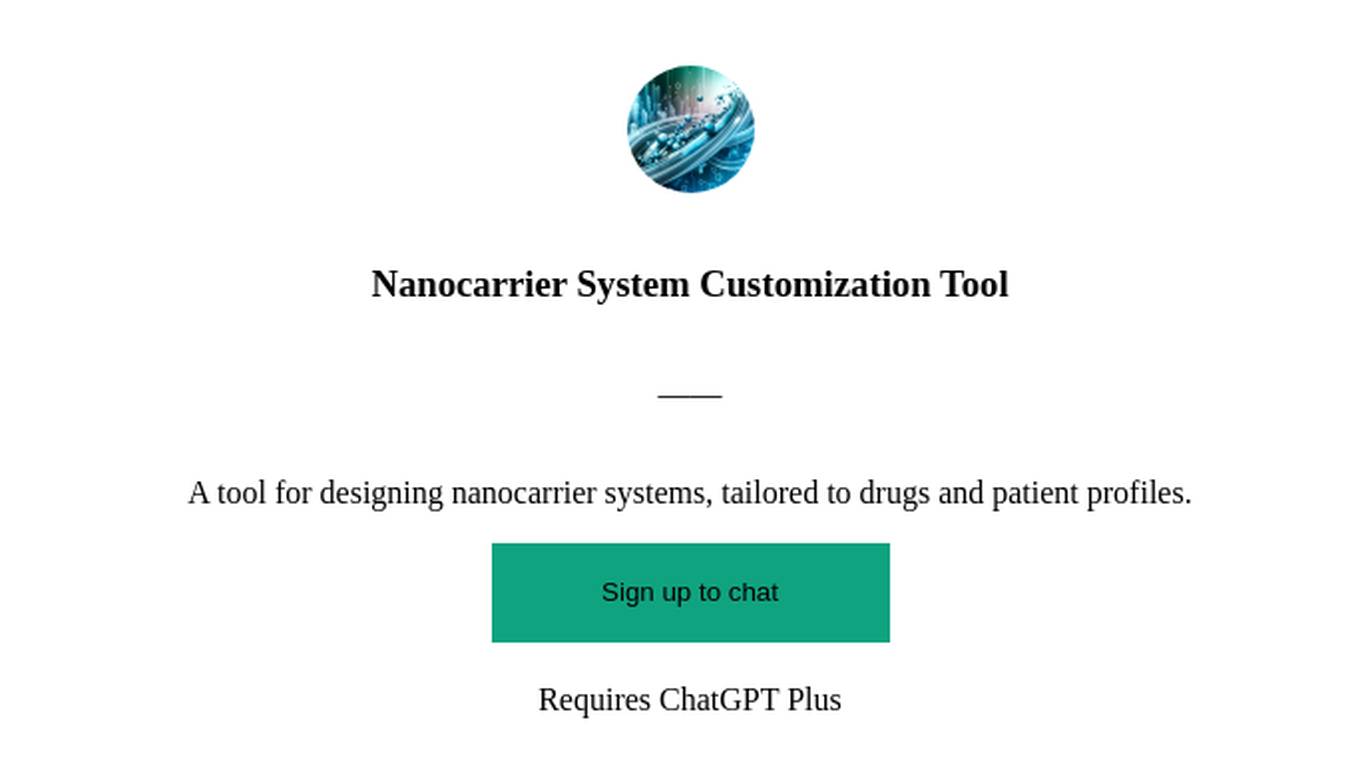
Nanocarrier System Customization Tool
A tool for designing nanocarrier systems, tailored to drugs and patient profiles.
